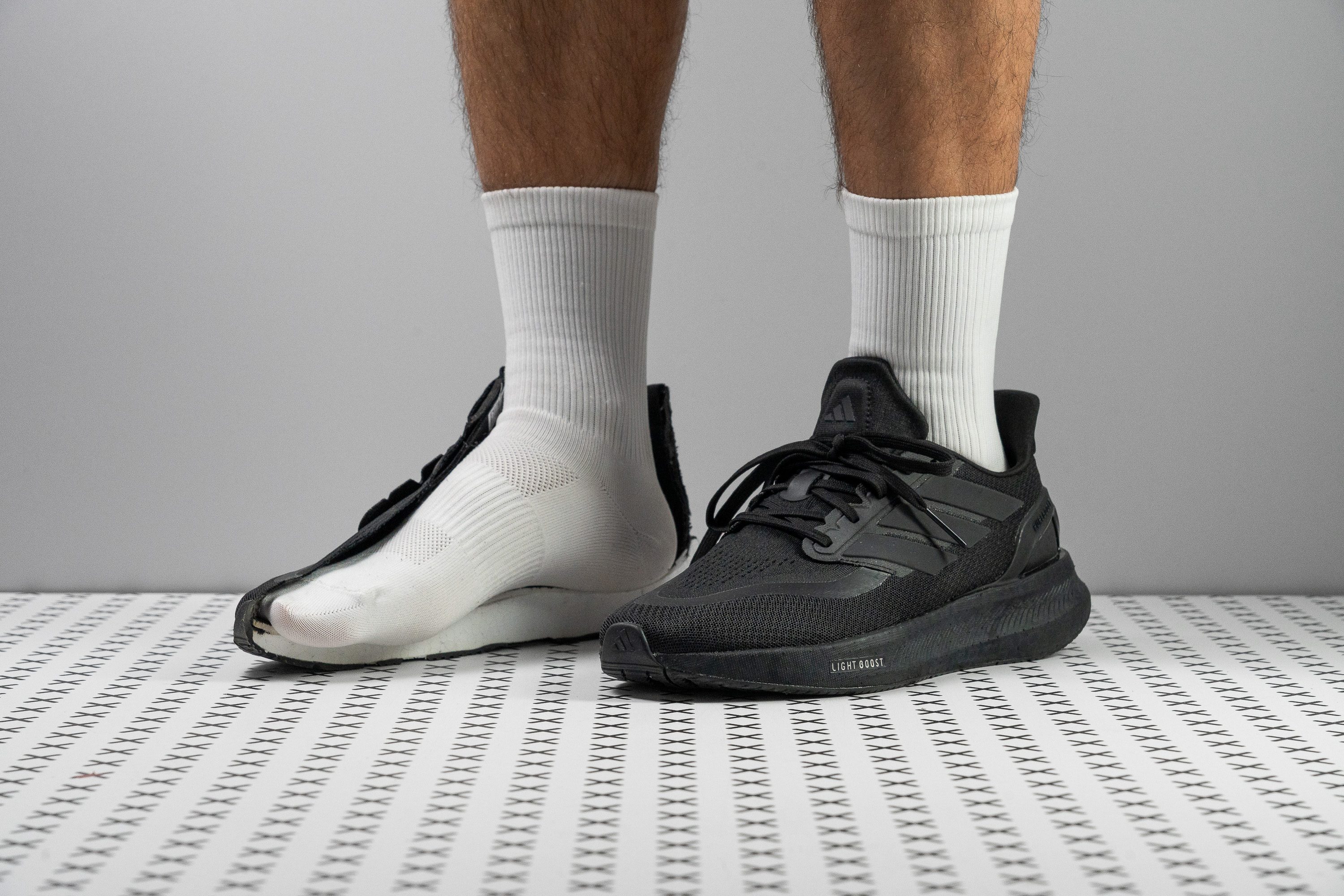Our verdict
Pros
- Features the new Light Boost foam
- Breathable upper
- Spacious toebox vs. most competitors
- Ideal for heel strikers
- Much lighter than Pureboost 23
- Solid durability
- Semi-gusseted tongue offers top lockdown
- Flexible build suits casual use
- Reflective elements
Cons
- Low toebox height
- Not for long runs
- Angled heel design not for everyone
Audience verdict
Comparison
The most similar running shoes compared
+ + Add a shoe | |||||
|---|---|---|---|---|---|
| Audience score | 83 Good! | 83 Good! | 79 Good! | 81 Good! | |
| Price | £110 | £70 | £65 | £130 | |
| Pace | Daily running | Daily running | Daily running | Daily running | |
| Shock absorption | Moderate | Moderate | Moderate | Low | |
| Energy return | High | Low | Low | High | |
| Traction | High | Moderate | Moderate | Moderate | |
| Arch support | Neutral | Neutral | Neutral | Neutral | |
| Weight lab Weight brand | 9 oz / 254g 9.5 oz / 270g | 10.4 oz / 295g 10.8 oz / 306g | 9.7 oz / 275g 9.7 oz / 275g | 10.8 oz / 305g 10.8 oz / 307g | |
| Drop lab Drop brand | 9.2 mm 10.0 mm | 8.5 mm 5.0 mm | 7.8 mm 8.0 mm | 11.5 mm 10.0 mm | |
| Strike pattern | HeelMid/forefoot | HeelMid/forefoot | Mid/forefoot | Heel | |
| Size | True to size | True to size | True to size | True to size | |
| Midsole softness | Balanced | Balanced | Balanced | Soft | |
| Difference in midsole softness in cold | Small | Big | Small | Small | |
| Toebox durability | Good | Decent | Bad | Decent | |
| Heel padding durability | Good | Good | Good | Good | |
| Outsole durability | Decent | Good | Decent | Good | |
| Breathability | Moderate | Moderate | Moderate | Breathable | |
| Width / fit | Medium | Medium | Medium | Medium | |
| Toebox width | Wide | Medium | Medium | Wide | |
| Stiffness | Moderate | Moderate | Moderate | Flexible | |
| Torsional rigidity | Moderate | Stiff | Moderate | Flexible | |
| Heel counter stiffness | Moderate | Stiff | Stiff | Stiff | |
| Heel lab Heel brand | 31.2 mm 33.0 mm | 33.5 mm 29.0 mm | 31.2 mm 31.0 mm | 27.6 mm 22.0 mm | |
| Forefoot lab Forefoot brand | 22.0 mm 23.0 mm | 25.0 mm 24.0 mm | 23.4 mm 23.0 mm | 16.1 mm 12.0 mm | |
| Widths available | Normal | Normal | NormalWideX-Wide | NormalWide | |
| Orthotic friendly | ✓ | ✓ | ✓ | ✓ | |
| Season | All seasons | All seasons | All seasons | SummerAll seasons | |
| Removable insole | ✓ | ✓ | ✓ | ✓ | |
| Ranking | #503 Bottom 26% | #275 Bottom 28% | #336 Bottom 12% | #307 Bottom 19% | |
| Popularity | #501 Bottom 26% | #187 Top 49% | #70 Top 19% | #283 Bottom 26% |
Who should buy
We believe that the best buyers for the Adidas Pureboost 5 are:
- Those who want to skip the Ultraboost price tag but still want the same new foam and Adidas design DNA.
- Heel strikers needing a durable, feather-light daily trainer with a stable rearfoot.
- New runners starting their journey who want a gym-and-commute-friendly shoe that blends some performance and everyday comfort.
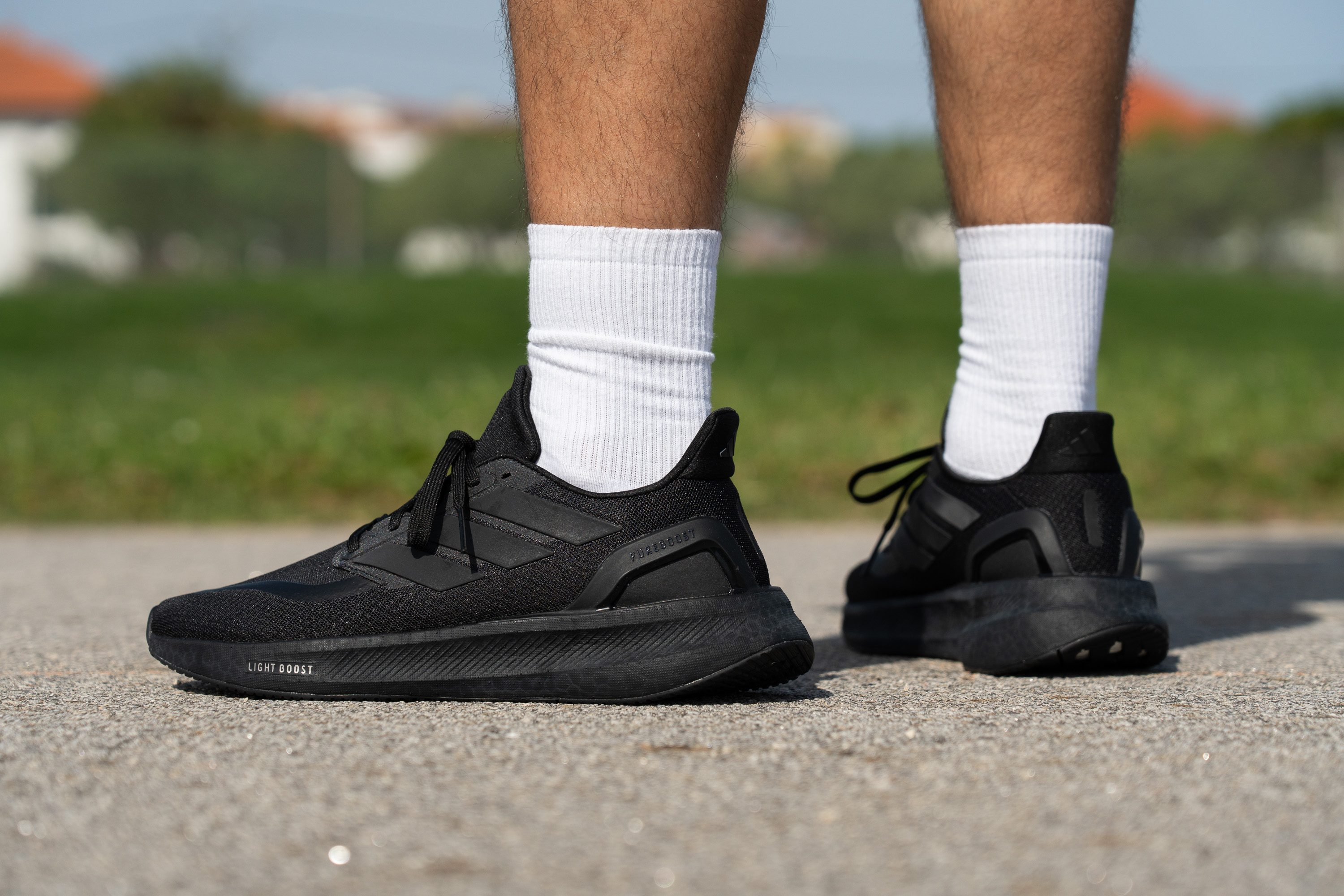
Who should NOT buy
The Adidas Pureboost 5 is a daily trainer with a slightly lower stack height, which might not appeal to runners chasing a maximalist feel. If that’s a dealbreaker, spending more for added foam—like in the ASICS Novablast 5 or Adidas Ultraboost 5—could be a worthy move.
We also think the Light Boost foam may come off as firm if you’re craving a softer, sink-in sensation. For a more cushion-focused ride at an even lower price, the Nike Winflo 11 is our top pick.
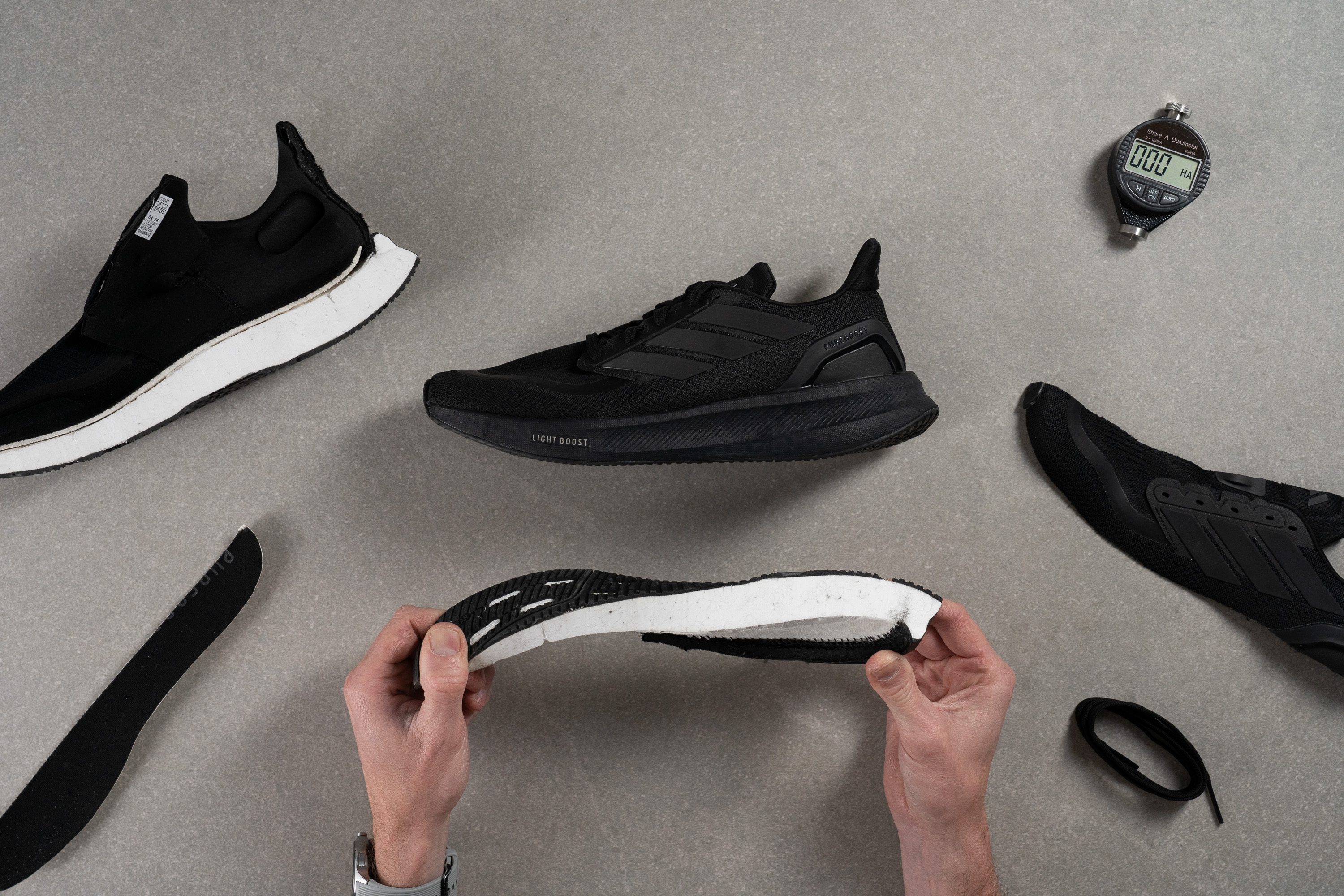
Cushioning
Shock absorption
One of the biggest downsides of this model’s predecessor was its low-impact cushioning due to its thin midsole. Luckily, Adidas addressed that in the Pureboost 5, which now features improved shock absorption for slightly heavier runners or longer outings.
We tested it and found 124 SA instead of the previous 108 SA!
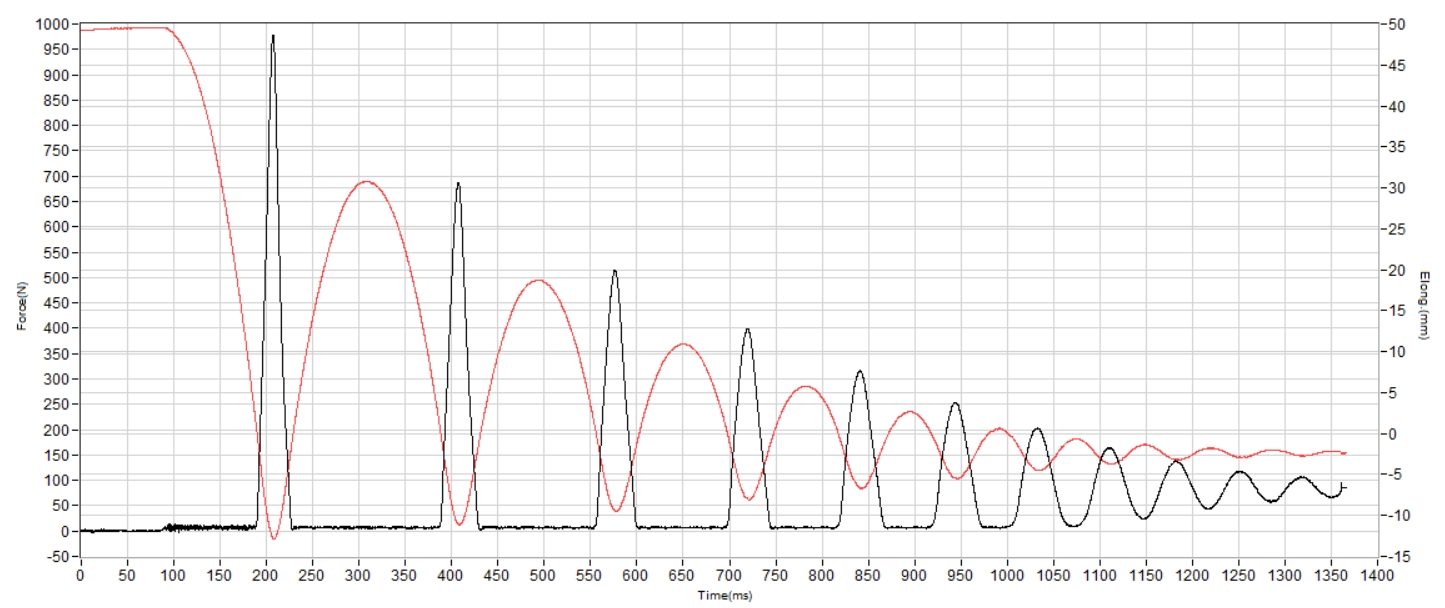
| Pureboost 5 | 124 SA |
| Average | 130 SA |
Energy return
Energy return remains solid thanks to the Light Boost foam, which clearly outperforms basic EVA and even the supercritical EVA used in many modern daily trainers from other brands. We measured an impressive 67.7% in our test, which is remarkable for a shoe at this price point.
| Pureboost 5 | 67.7% |
| Average | 58.6% |
Heel stack
One of the main critiques that the Adidas Pureboost 23 received from users and experts alike was the low stack height, as it featured only 27.6 mm, limiting its potential as a daily trainer.
In version 5, Adidas not only changed the naming structure but also added quite a bit of foam to reach 31.2 mm in the heel, bringing a more interesting design for those avoiding maximalist running shoes.
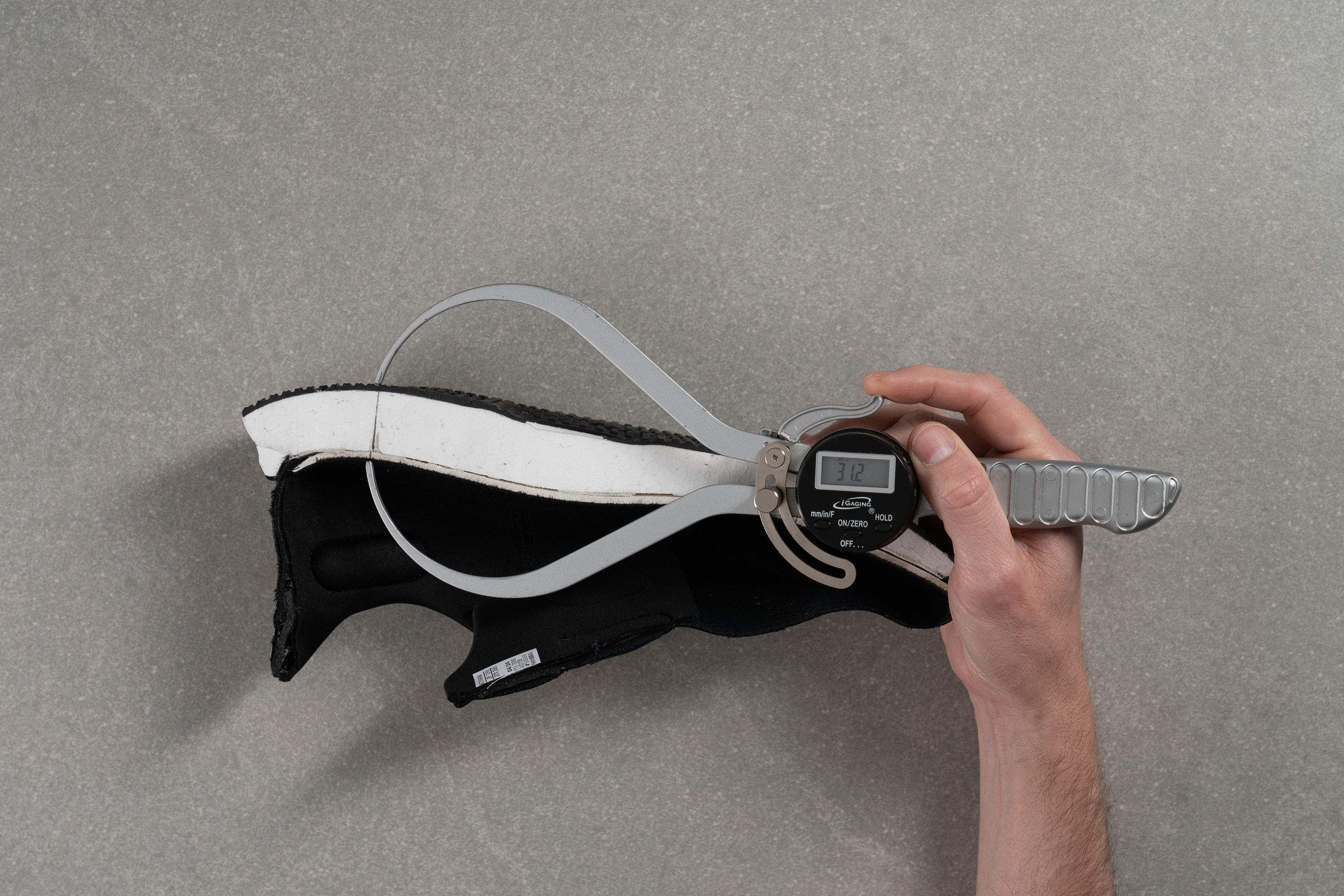
| Pureboost 5 | 31.2 mm |
| Average | 34.8 mm |
Forefoot stack
In classic Adidas fashion, the forefoot stack stays remarkably low at 22.0 mm, making this shoe mainly geared for heel strikers especially if long runs are part of their weekly routine. However, for short-to-medium runs, it performs well and feels ideal for those craving extra ground feel.
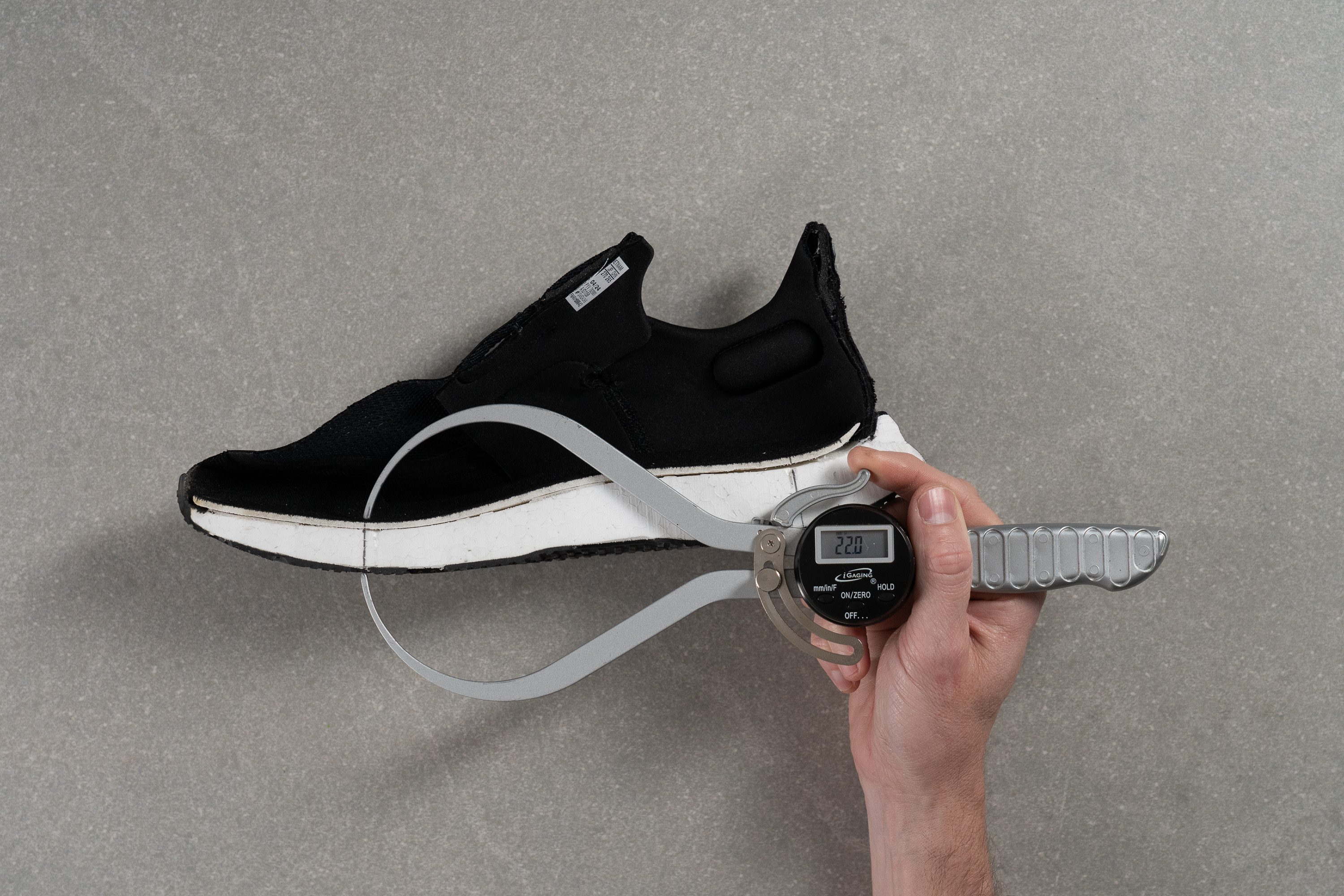
| Pureboost 5 | 22.0 mm |
| Average | 26.2 mm |
Drop
Another classic Adidas design feature is the high heel-to-toe drop, and the Pureboost 5 definitely ticks this box for those who enjoy a steep midsole.
We measured 9.2 mm—remarkably close to the official 10 mm spec and ideal for heel strikers.
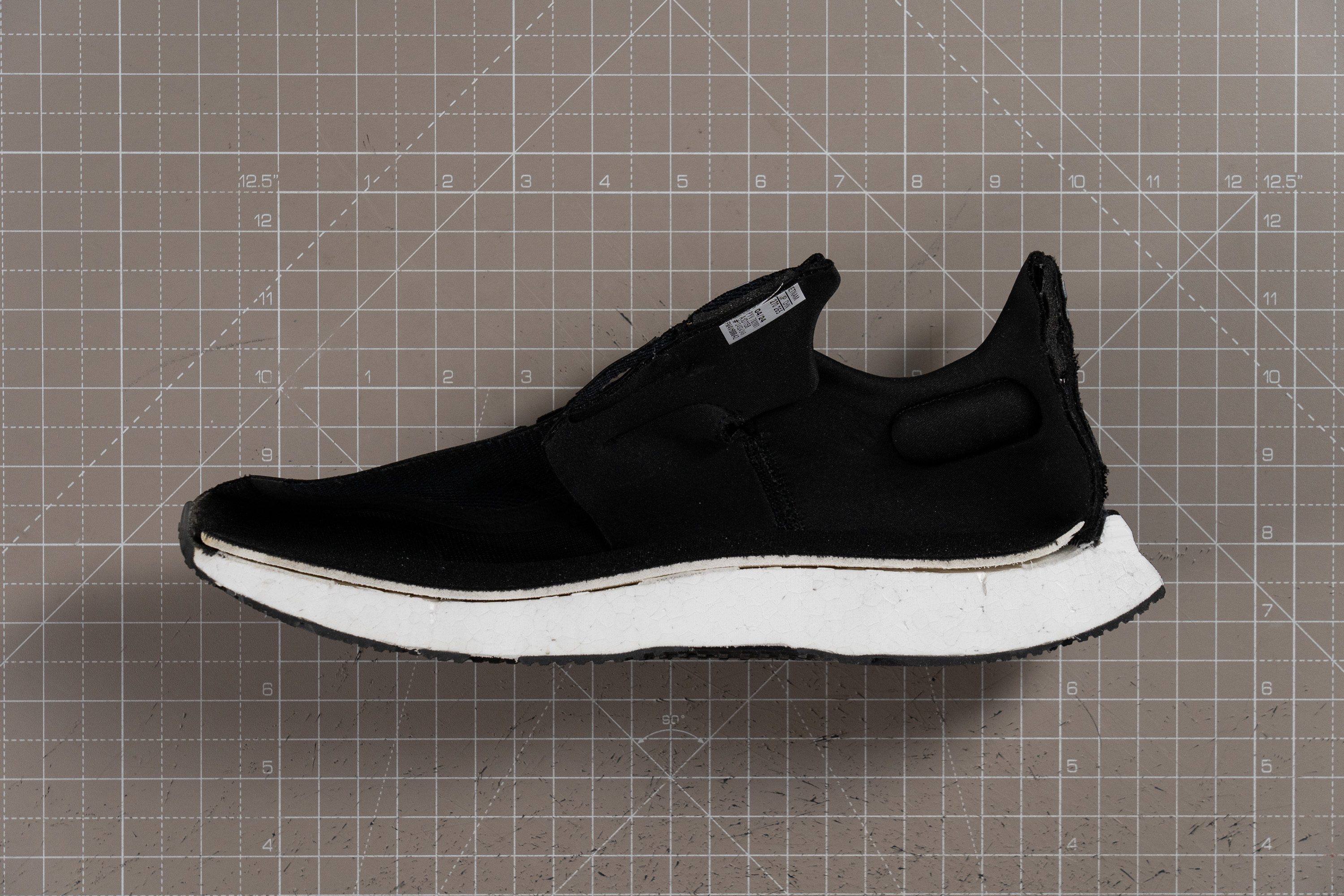
| Pureboost 5 | 9.2 mm |
| Average | 8.6 mm |
Midsole softness
UpdatedThe biggest reason to upgrade from the Pureboost 23 to the Pureboost 5 is the new Light Boost midsole. It’s lighter and extra-bouncy compared to the old Boost, making it a no-brainer from a performance-driven standpoint.
However, it's slightly firmer than its predecessor. We tested it with our durometer and measured 39.6 AC, so those wanting a plush-and-cushy ride may not enjoy this change.
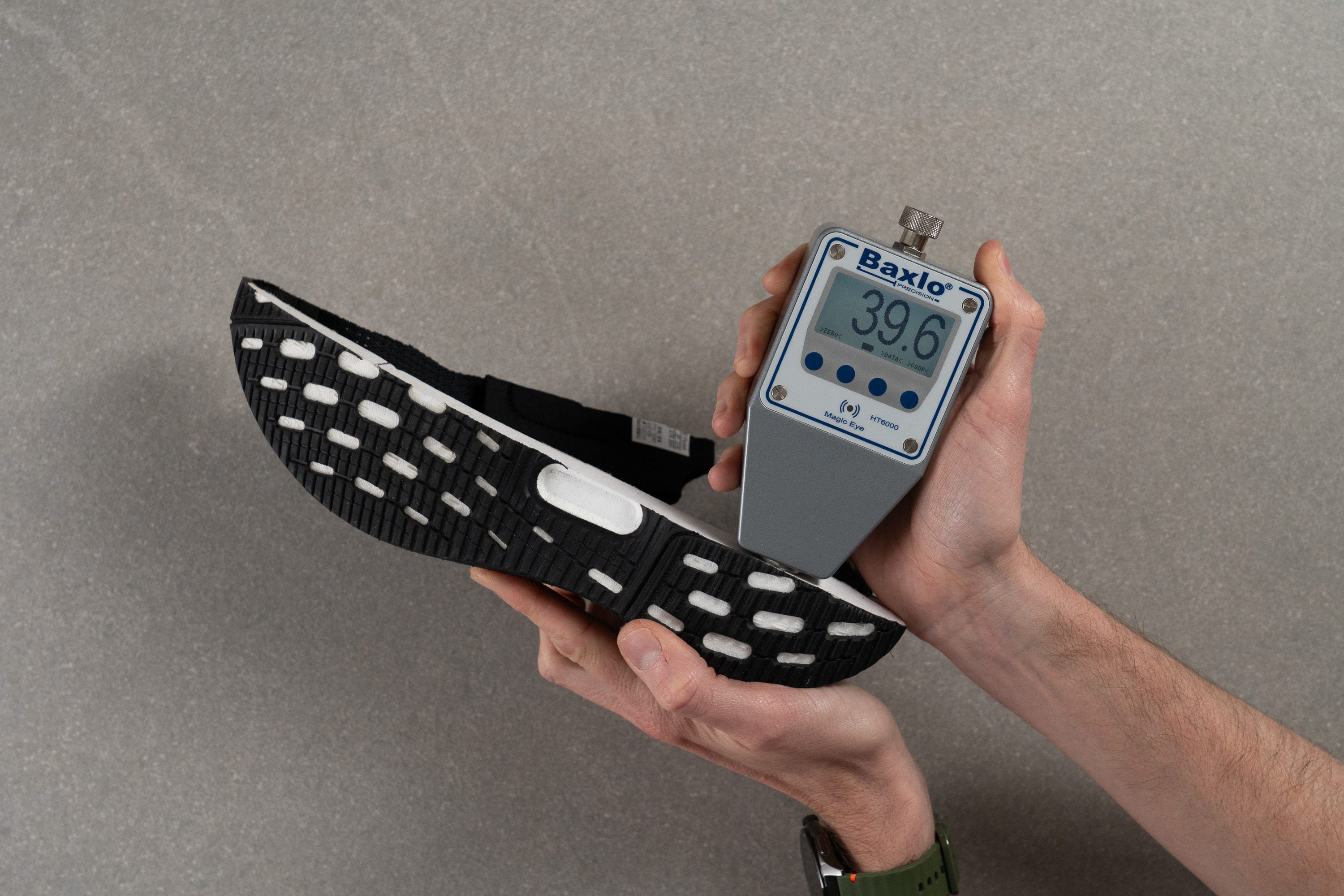
| Pureboost 5 | 39.6 AC |
| Average | 36.4 AC |
Rocker
One of the advantages of skipping a maximalist midsole is that, if you want, you can design a running shoe with a flatter, highly-natural profile. In other words—no need for an ultra-rockered shape, which may be trendy but bothers many runners too.
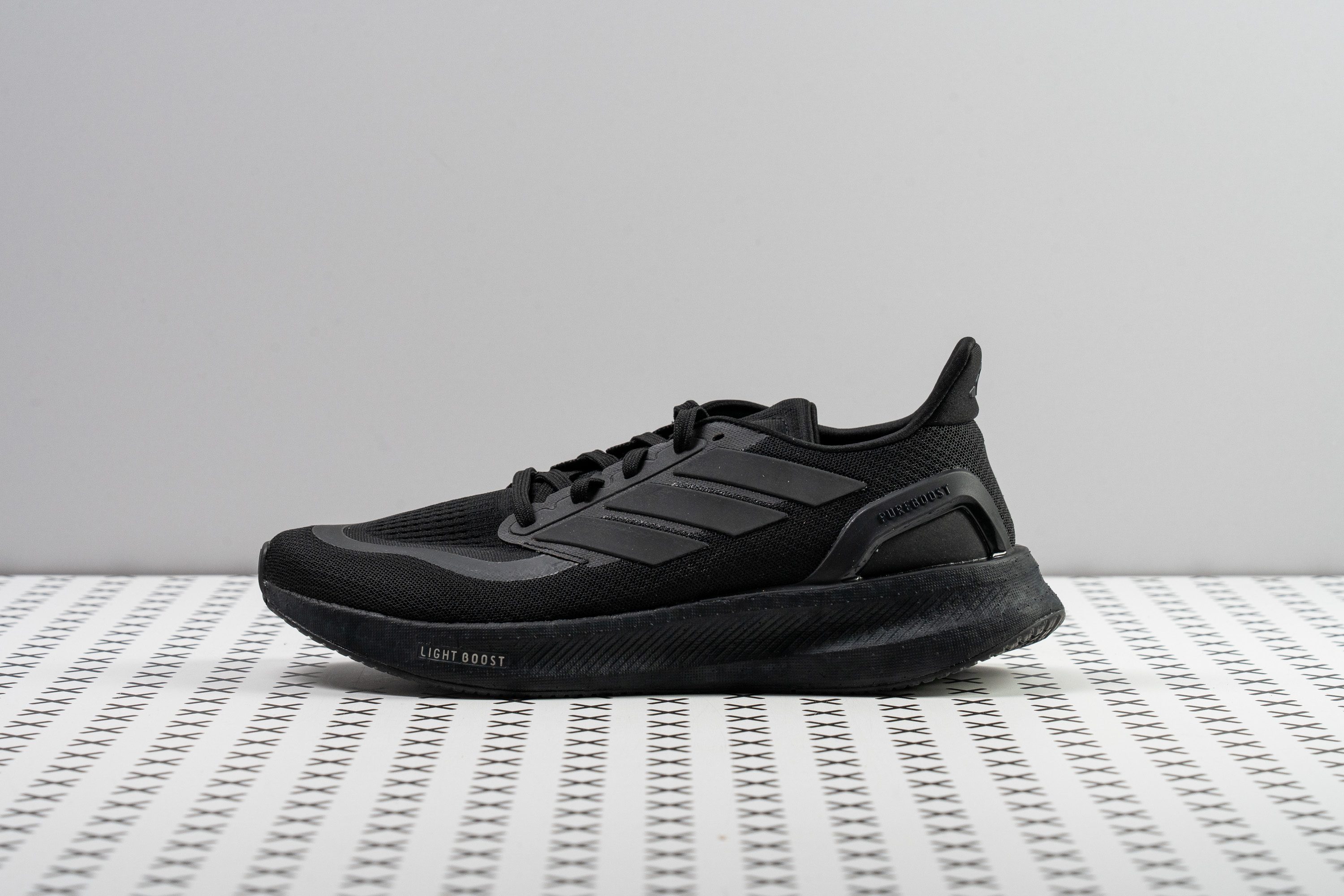
That’s what the Pureboost 5 delivers in the forefoot, being one of the more ground-connected, comfort-driven rides we’ve tested this year.
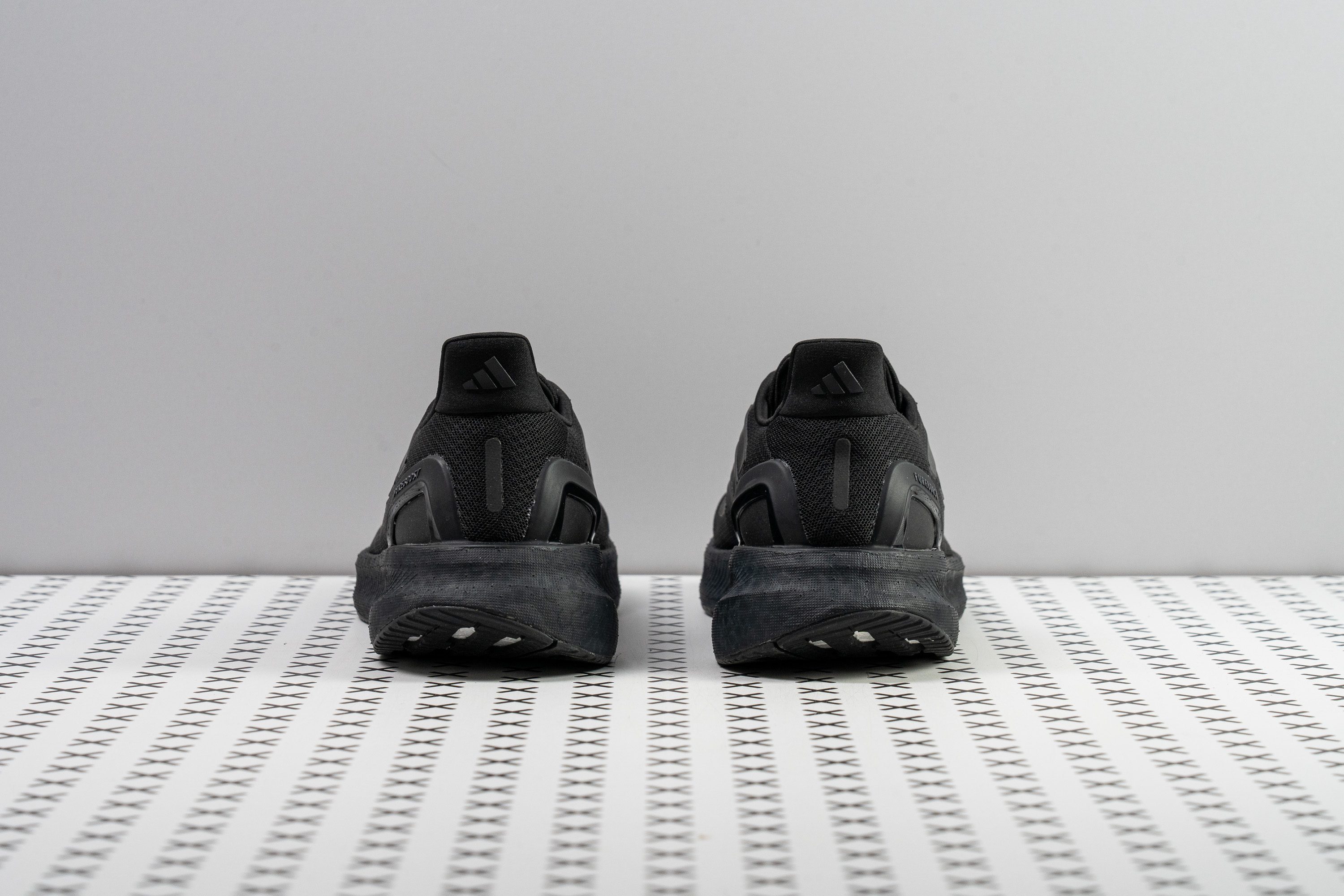
On the other side, the heel is designed like Adidas usually does in their daily trainers, with a large posterior lateral bevel that won’t work for everyone. However, heel strikers with a slight lateral bias will love this unique geometry.
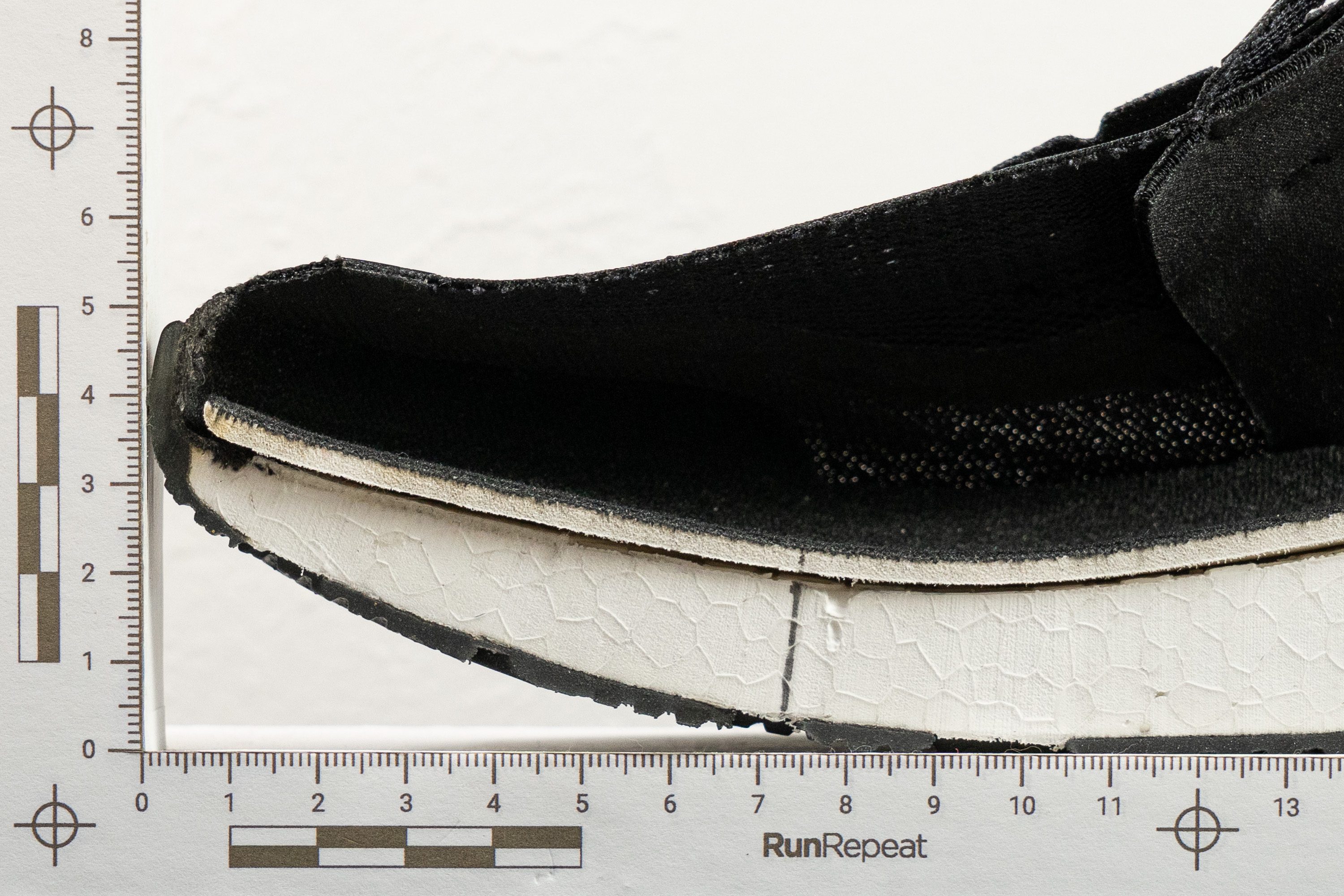
Size and fit
Size
Adidas Pureboost 5 fits true to size (62 votes).
Width / Fit
One key feature of the Pureboost 23 was the roomy toebox, and we genuinely wanted Adidas to continue that comfort-driven design. To discover how this update performs, we made a gel mould and took 3 measurements.
The first one at the widest part of the shoe showed us that, at 97.1 mm, it’s still above average—leaning toward a more spacious-than-average fit. This feels like super-encouraging news for those wanting a continuistic design, but let's keep going.
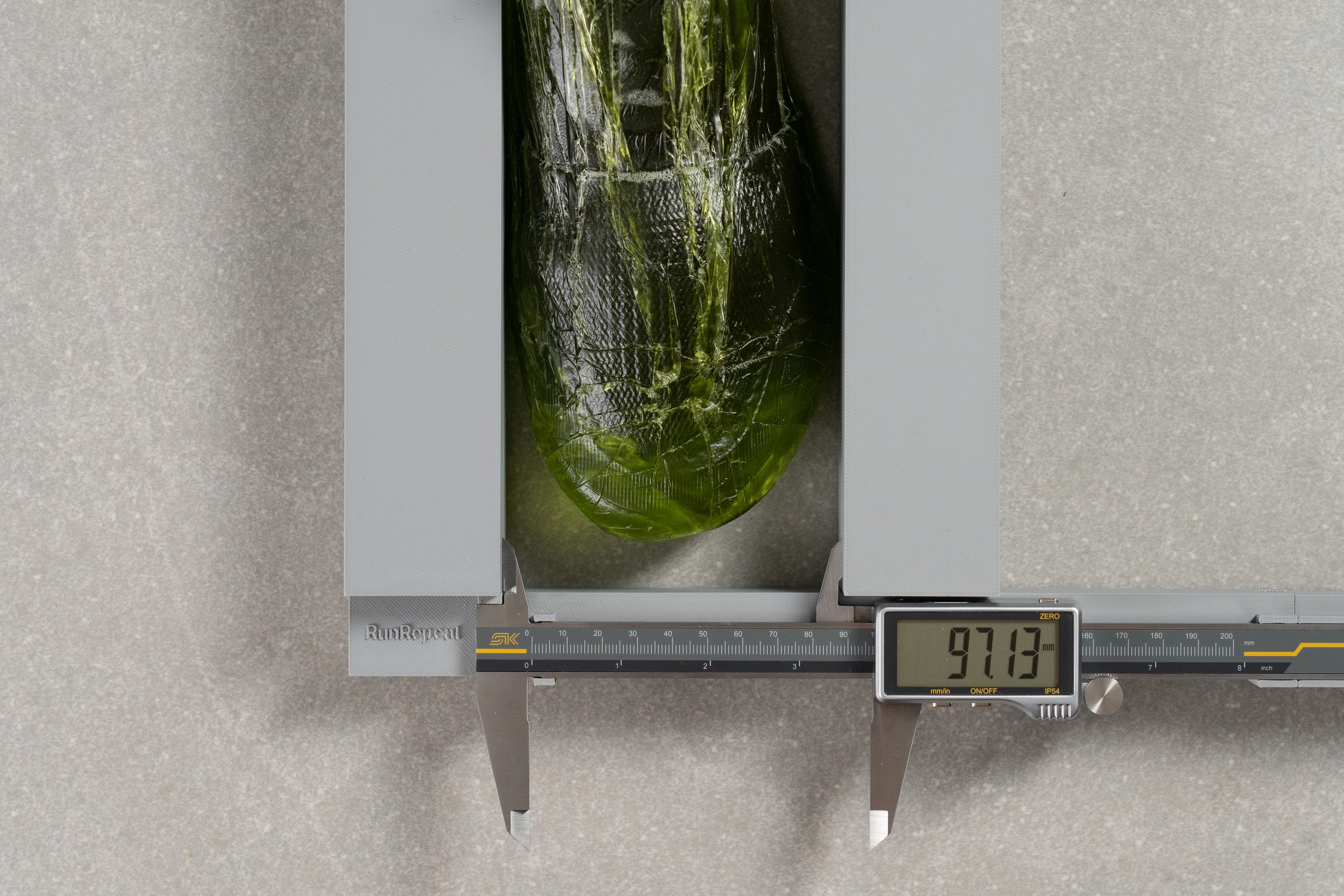
| Pureboost 5 | 97.1 mm |
| Average | 95.1 mm |
Toebox width
With the second measurement, we confirmed that this shoe offers a surprisingly generous amount of toe room. At 77.5 mm, it’s a wide-foot-friendly design—perfect for those who loved its predecessor and want to buy confidently.
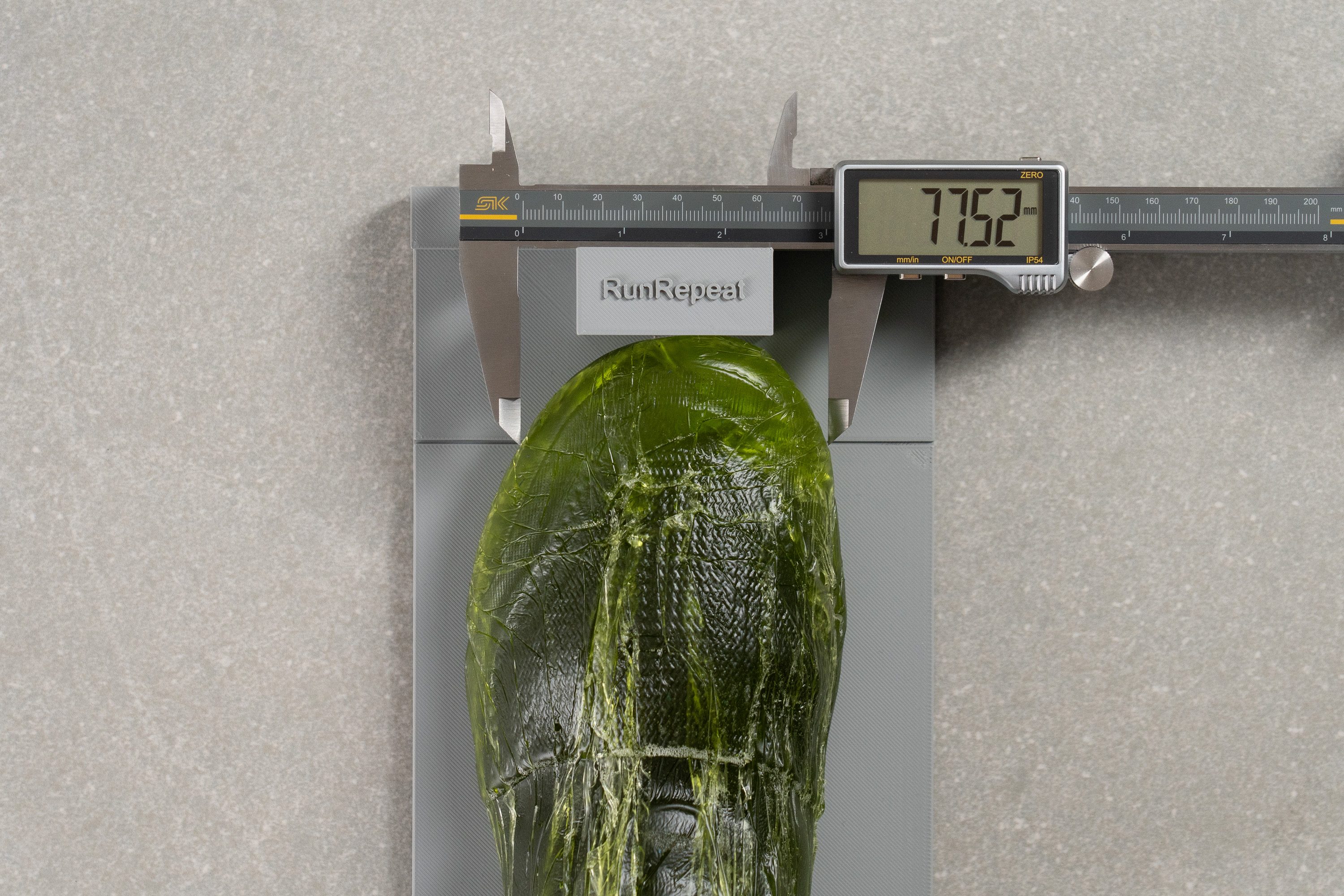
| Pureboost 5 | 77.5 mm |
| Average | 73.3 mm |
Toebox height
On the flip side, the upper feels notably limited in vertical space.
Hence, if you’re a runner who dislikes a tight fit or have large, high-volume feet, this might become an issue.
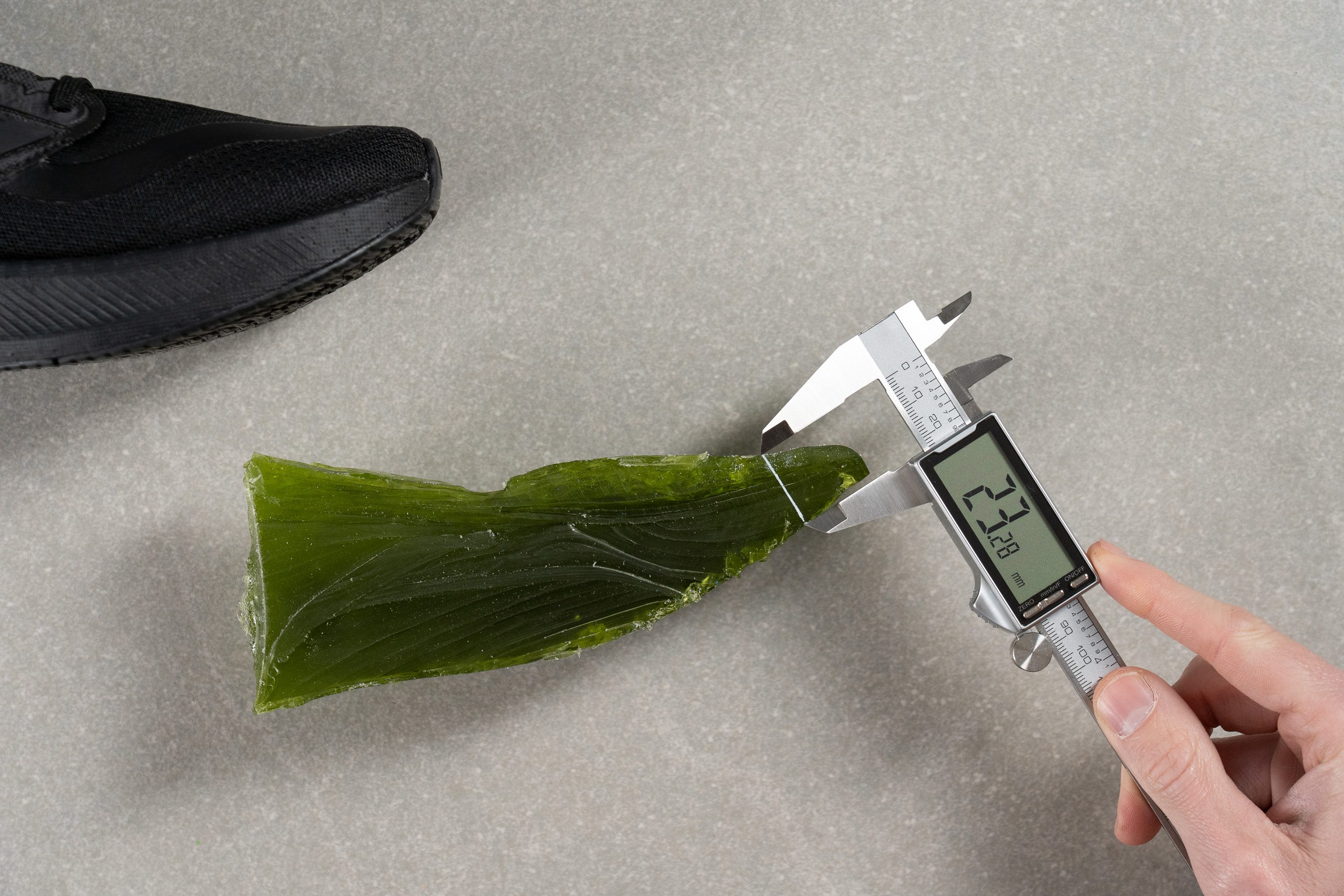
| Pureboost 5 | 23.3 mm |
| Average | 27.0 mm |
Traction / Grip
Traction test
The absence of Continental rubber might not be our favorite choice, but Adiwear still performed surprisingly well in our grip test. With a solid 0.61 score on wet concrete, this shoe proves it’s an all-weather road runner—something rarely seen at this price point.
| Pureboost 5 | 0.61 |
| Average | 0.49 |
Outsole design
We liked the full-length rubber coverage mixed with flex-enhancing, weight-saving cutouts of the Pureboost 5 outsole. It has the Ultraboost vibes!
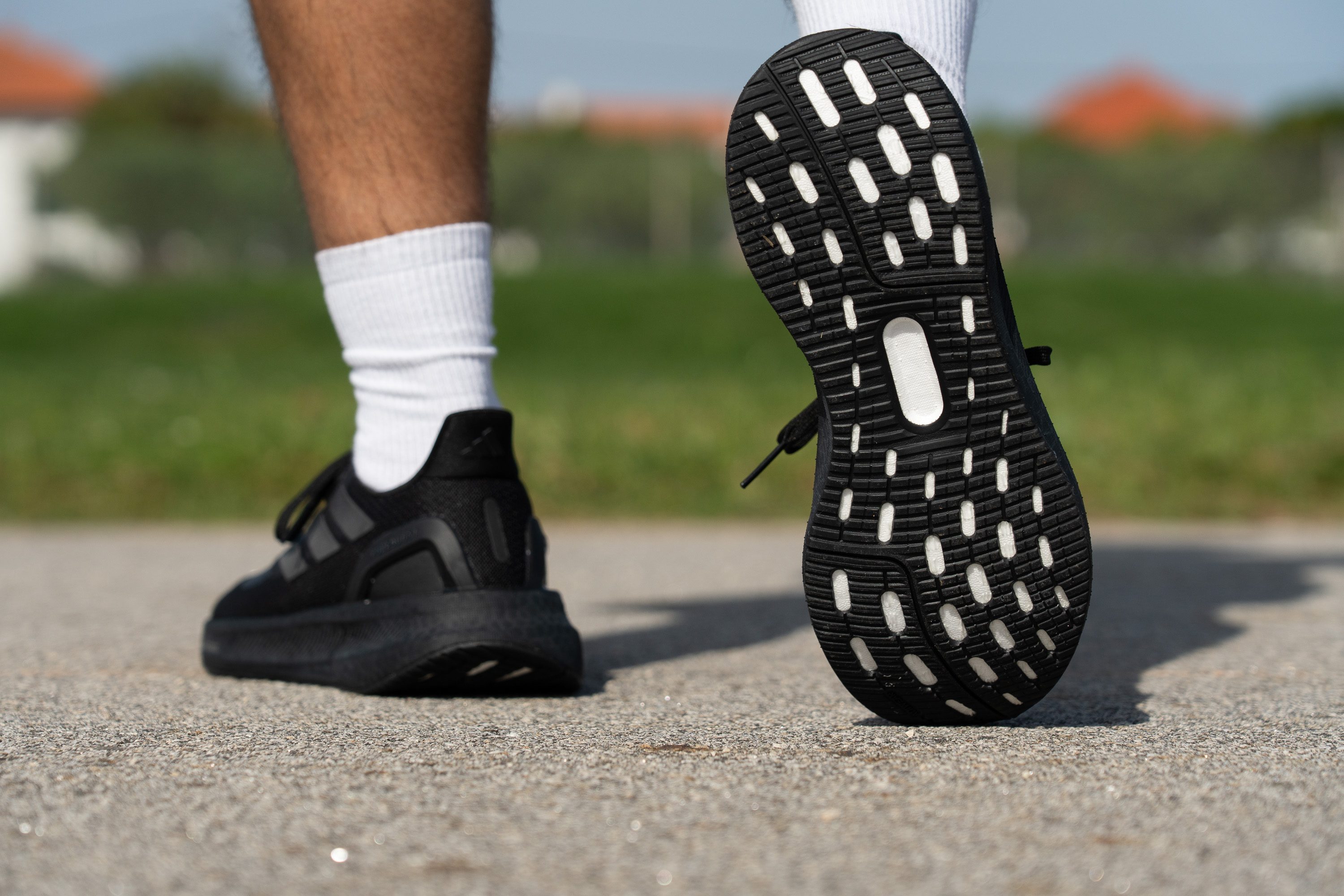
Flexibility / Stiffness
For any daily trainer to feel pleasant and versatile for everyday use like walking or gym sessions, it needs to be highly-flexible from a longitudinal standpoint too. While the Pureboost 5 doesn’t excel, we found it does a good job with 13.0N in our 30-degree bend test.
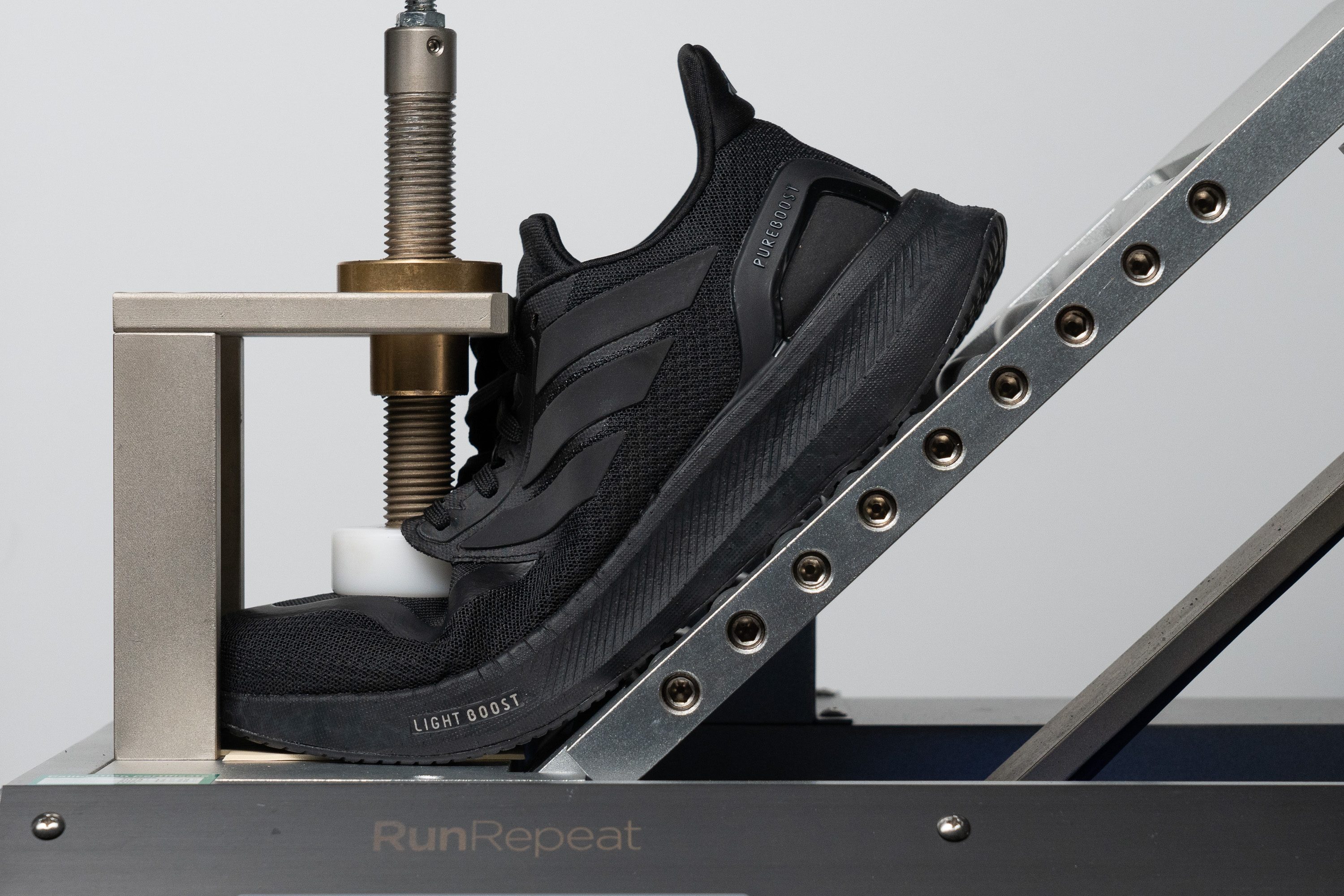
| Pureboost 5 | 13.0N |
| Average | 15.3N |
Weight
For us, the main reason to upgrade from the previous model is Light Boost, which, true to its name, is much lighter than Boost. But how much?
We tested and discovered that, with more stack height than the Pureboost 23, the Pureboost 5 weighs 8.95 oz or 254g, while its predecessor weighed 10.8 oz or 305g. That's 20% less!
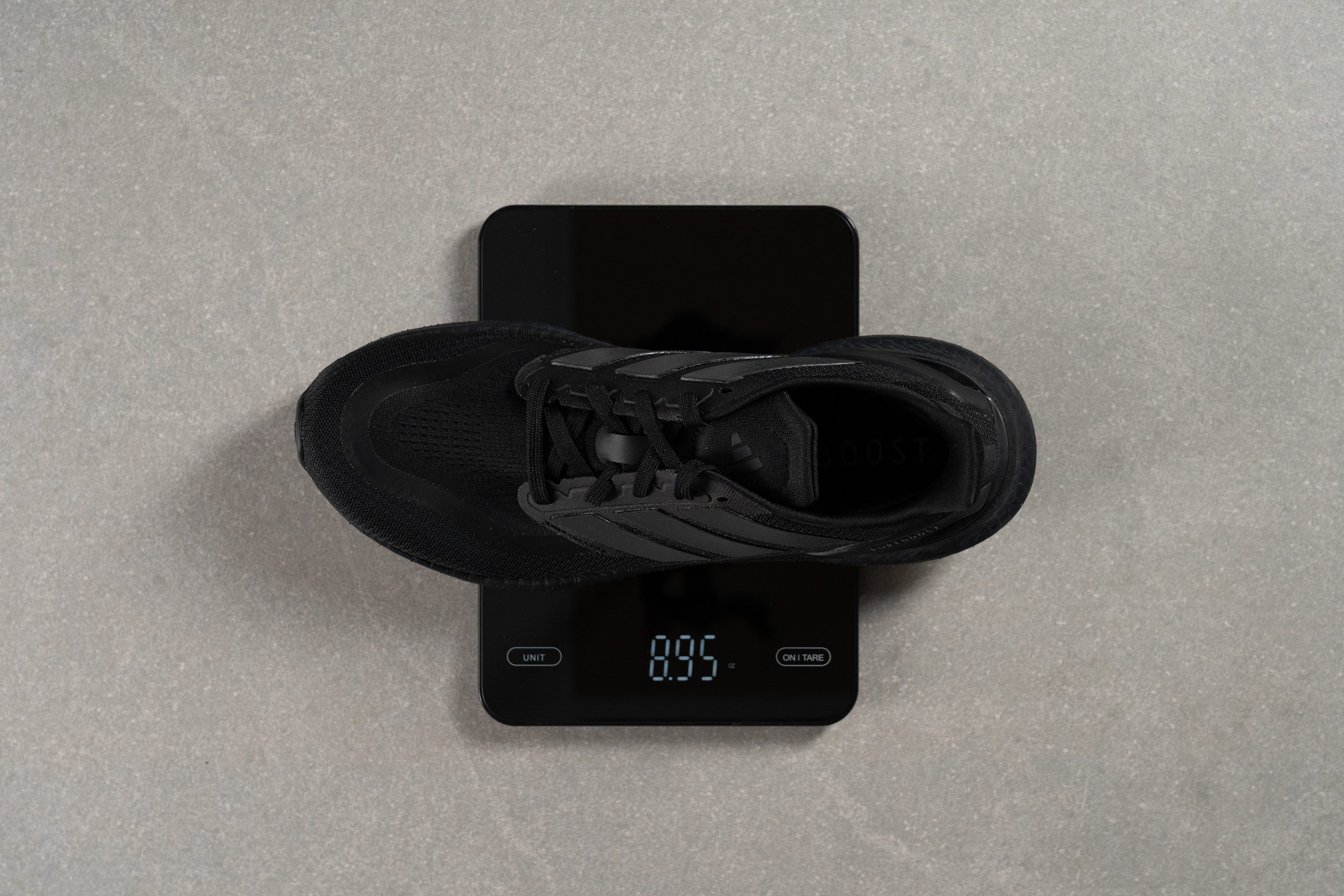
| Pureboost 5 | 9.0 oz (254g) |
| Average | 9.3 oz (264g) |
Breathability
This black colorway might give the impression of limited breathability, but the colour itself doesn’t affect airflow—though it does influence how much heat the shoe absorbs under the sun. That’s exactly why proper ventilation is even more critical in dark-toned shoes.
We tested the Pureboost 5 with our smoke-pumping machine and found that Adidas did a solid job here. After evaluating the airflow, we confidently rated it 4/5 thanks to its breathable mesh.
This result came from the ventilation holes Adidas added to the toebox and part of the midfoot. These openings allow excellent airflow, even on scorching summer runs. However, we still don’t recommend this triple-black version if you live in a hot climate.
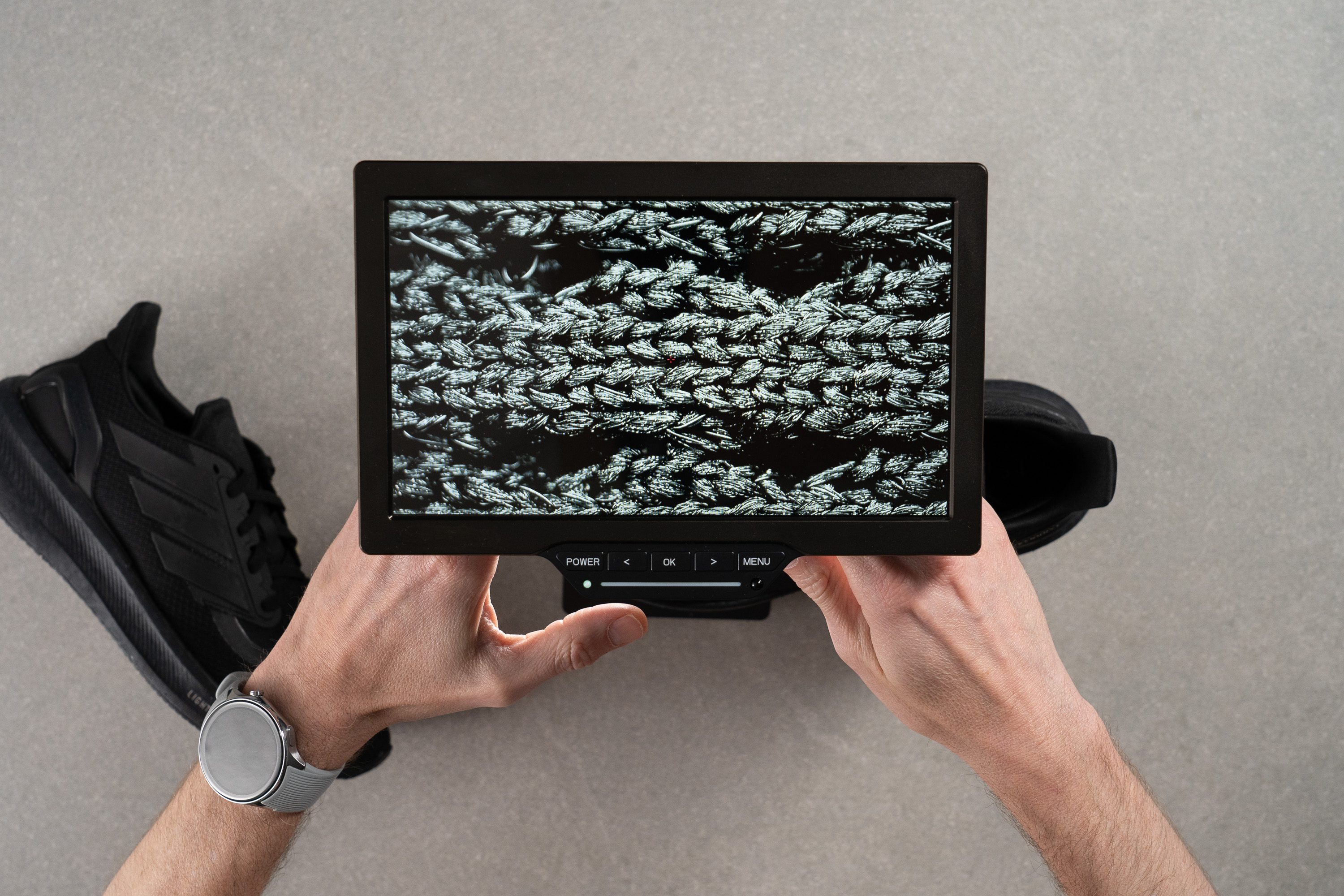
Under the microscope, the engineered mesh looked pretty basic.
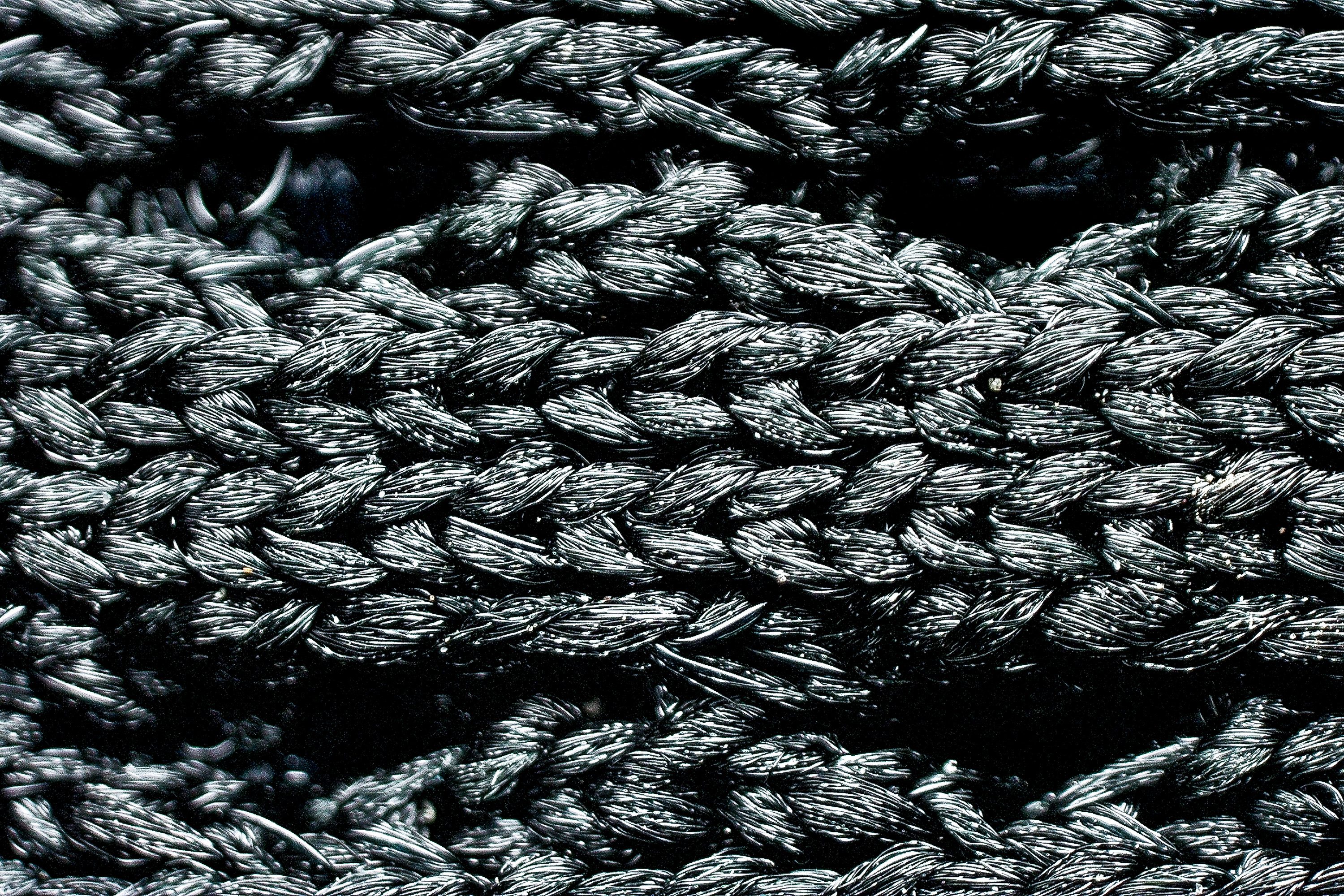
Still, we appreciated that it’s partially crafted from recycled materials. While greenwashing is still present in the running shoe industry, this detail deserves credit.
For the price, the upper is actually quite good. While it's not very plush in comparison to more cushioned trainers, we think it’ll satisfy most runners.
| Pureboost 5 | 4 |
| Average | 3.7 |
Stability
Lateral stability test
The Pureboost 5 is a neutral running shoe, though some runners with mild stability needs might still enjoy it—especially heel strikers who benefit from the lateral heel bevel and dual plastic inserts on the heel counter that center the ride on every step.
Torsional rigidity
We appreciated that Adidas kept torsional rigidity comfortably below average, scoring 3/5. In a market overflowing with stiff running shoes, it feels wonderfully refreshing to discover a highly-flexible design—especially appealing for those wanting a lifestyle-friendly option.
| Pureboost 5 | 3 |
| Average | 3.5 |
Heel counter stiffness
Scoring another 3/5, the heel counter is not particularly stiff, leaving all the stabilising work to the two lateral reinforcements we highlighted earlier.
| Pureboost 5 | 3 |
| Average | 2.9 |
Midsole width - forefoot
Another refreshing approach from Adidas is that, unlike many recent shoes, this one comes pretty standard in midsole width at 112.8 mm. We discovered this delivers less stability but adds playful agility and a less clunky feel underfoot.
This wasn’t a surprise either since Adidas mainly targets heel strikers with this model.
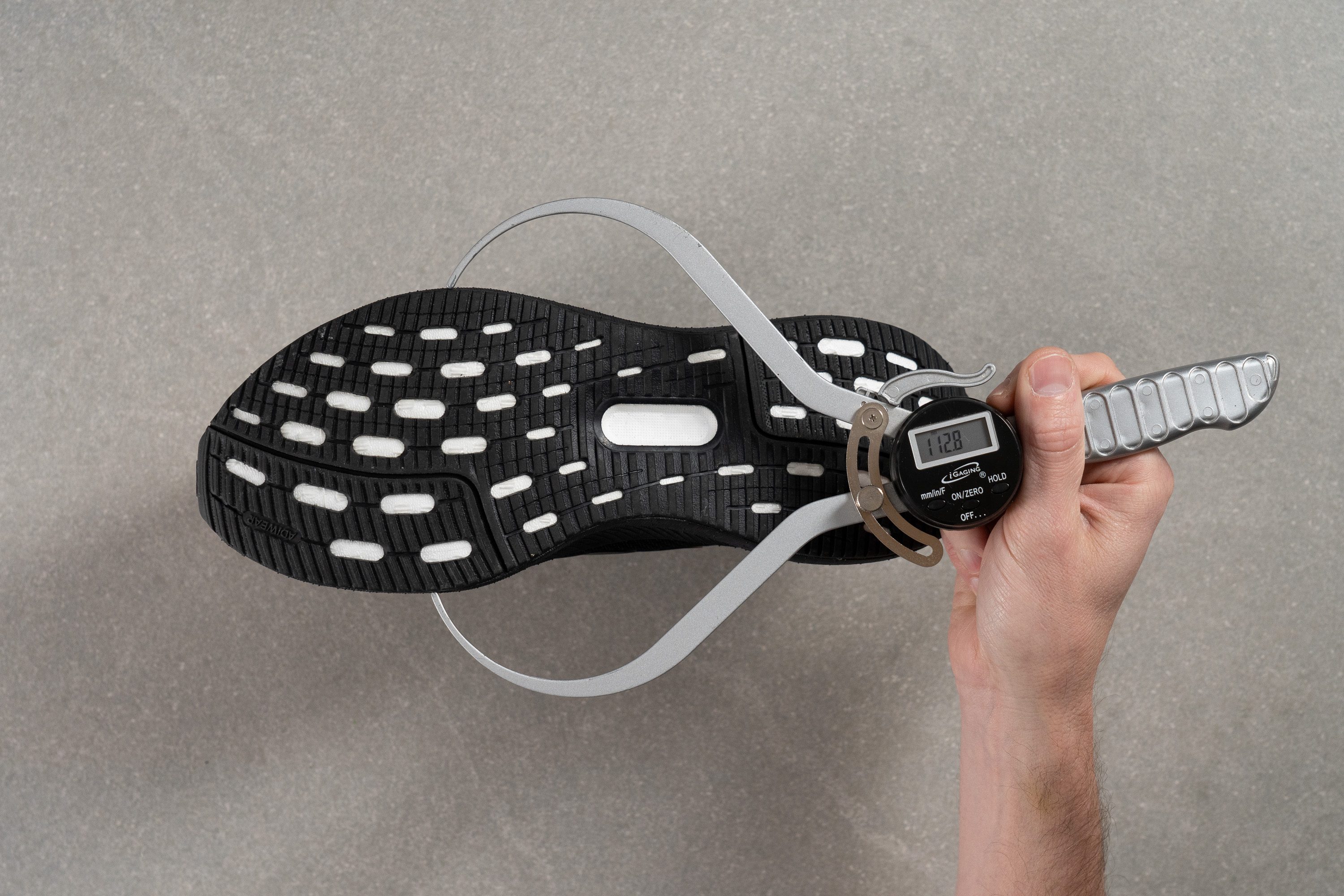
| Pureboost 5 | 112.8 mm |
| Average | 114.4 mm |
Midsole width - heel
Like we just said, this is a heel-striker-first shoe, and at 94.1 mm it clearly proves that. While the forefoot stays streamlined, we discovered the heel is wide despite the shoe’s moderate size and mid-height stack.
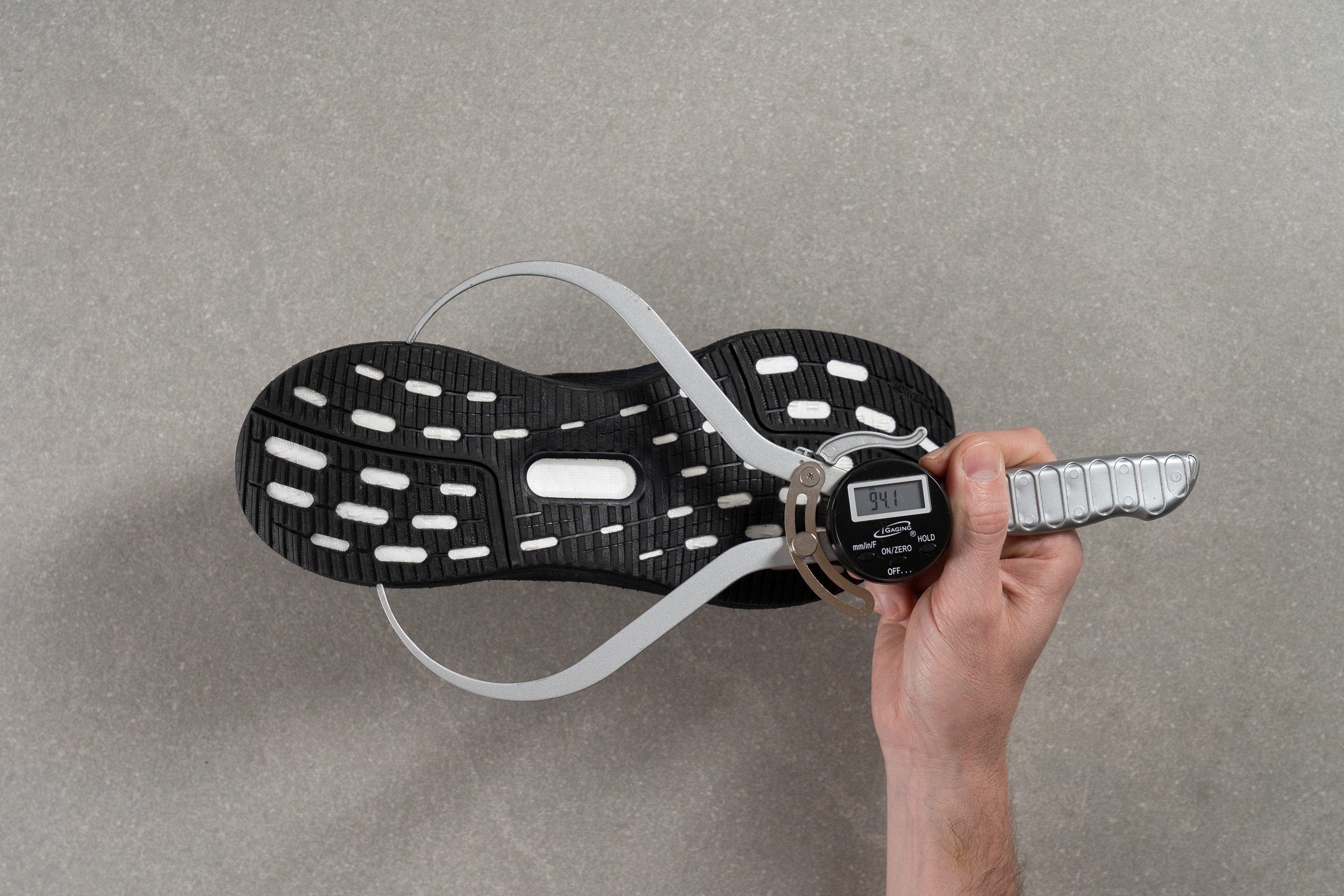
| Pureboost 5 | 94.1 mm |
| Average | 90.6 mm |
Durability
Toebox durability
The Pureboost 5 features a TPU protective layer that helps preserve the shape of the upper and shields it from big toe damage. That’s how it scored a solid 4/5 in our durability test.
Of course, if the test had been done directly on the mesh, the result probably would’ve been lower—but we always test the same location for consistency across all shoes.
| Pureboost 5 | 4 |
| Average | 2.6 |
Heel padding durability
The heel padding area also performed well in the Pureboost 5, scoring another 4/5 and outperforming the average shoe. Quite impressive for a model priced below daily trainers like the Pegasus 41.
| Pureboost 5 | 4 |
| Average | 3.4 |
Outsole hardness
The outsole is one of those areas where Adidas saved some money. While the Adiwear rubber scored 73.0 HC and isn't bad at all, it obviously trails behind the ultra-grippy Continental compound from pricier trainers.

That said, it holds up well. We found it provides good traction across various surfaces and offers multi-terrain versatility. We also liked the full-length rubber coverage mixed with flex-enhancing, weight-saving cutouts.
| Pureboost 5 | 73.0 HC |
| Average | 79.2 HC |
Outsole durability
The Adiwear rubber of the Pureboost 5 performed surprisingly well against our Dremel, showing just 1.0 mm of wear. That’s an impressive result for a lower-than-average hardness compound in our durometer test.
| Pureboost 5 | 1.0 mm |
| Average | 1.1 mm |
Outsole thickness
And with 3.0 mm of outsole thickness, we can confirm that Adidas delivers solid protection against wear—there’s plenty of rubber, and it holds up well.
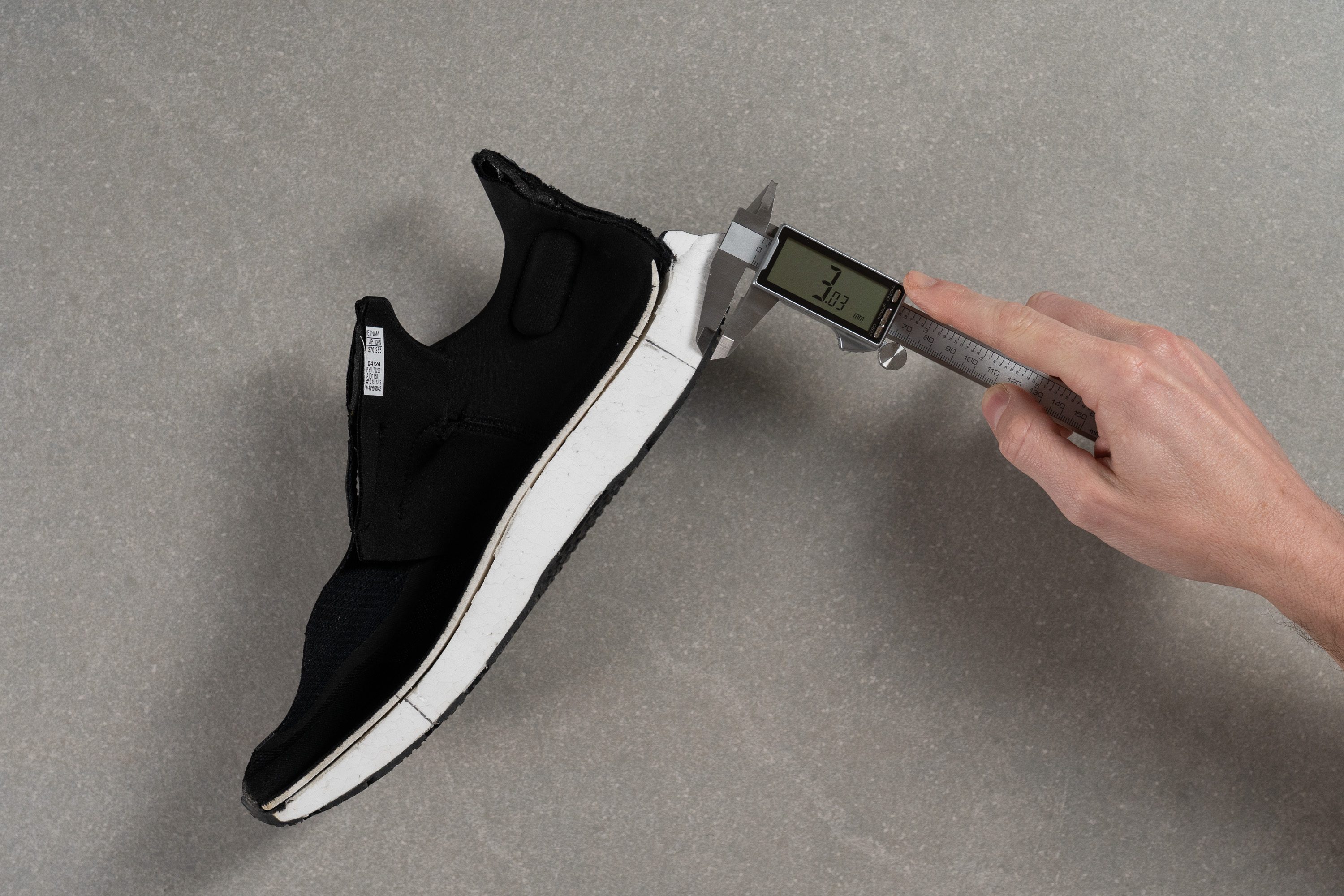
| Pureboost 5 | 3.0 mm |
| Average | 3.2 mm |
Misc
Insole thickness
The insole is noticeably thinner than average at 3.4 mm, and it’s crafted from eco-friendly, recycled materials for a sustainable touch.
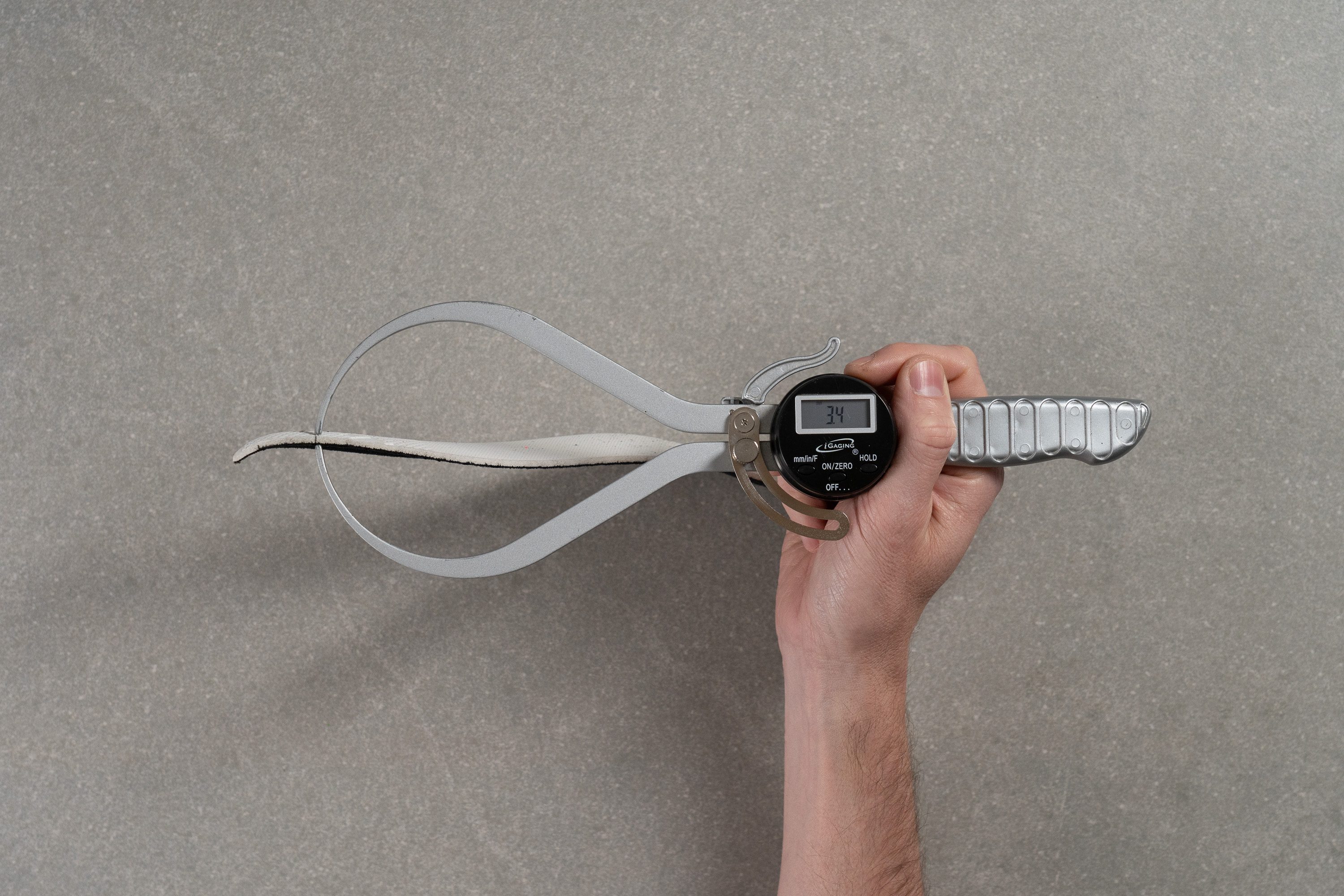
| Pureboost 5 | 3.4 mm |
| Average | 4.5 mm |
Removable insole
The Pureboost 5 includes a removable insole, making it compatible with custom orthotics—though we advise against thick options due to the limited vertical space inside the upper.
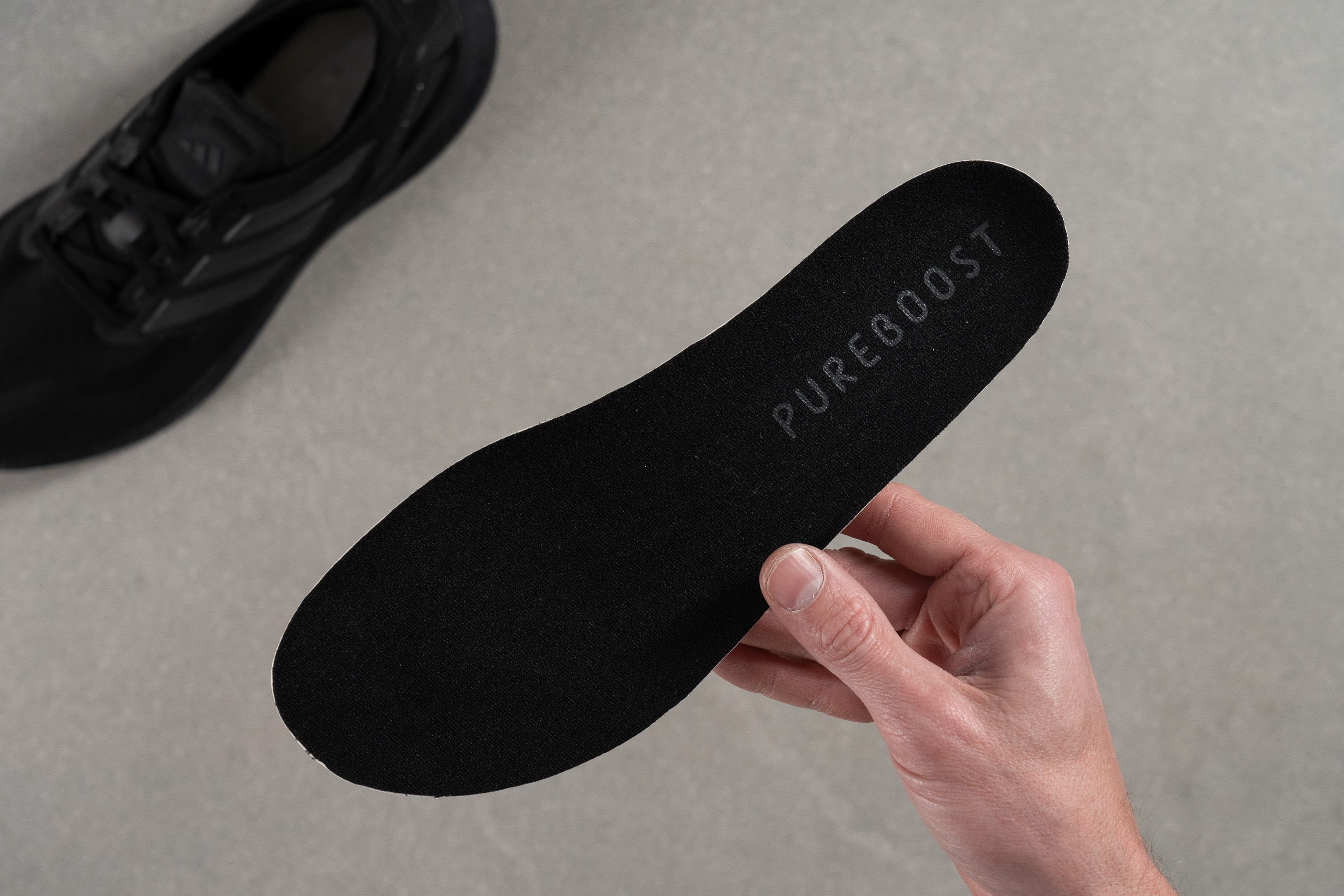
| Pureboost 5 | Yes |
Midsole softness in cold (%)
Light Boost maintains the strong performance of Boost in cold temperatures. We tested it in our freezer, and it only became 20% firmer.
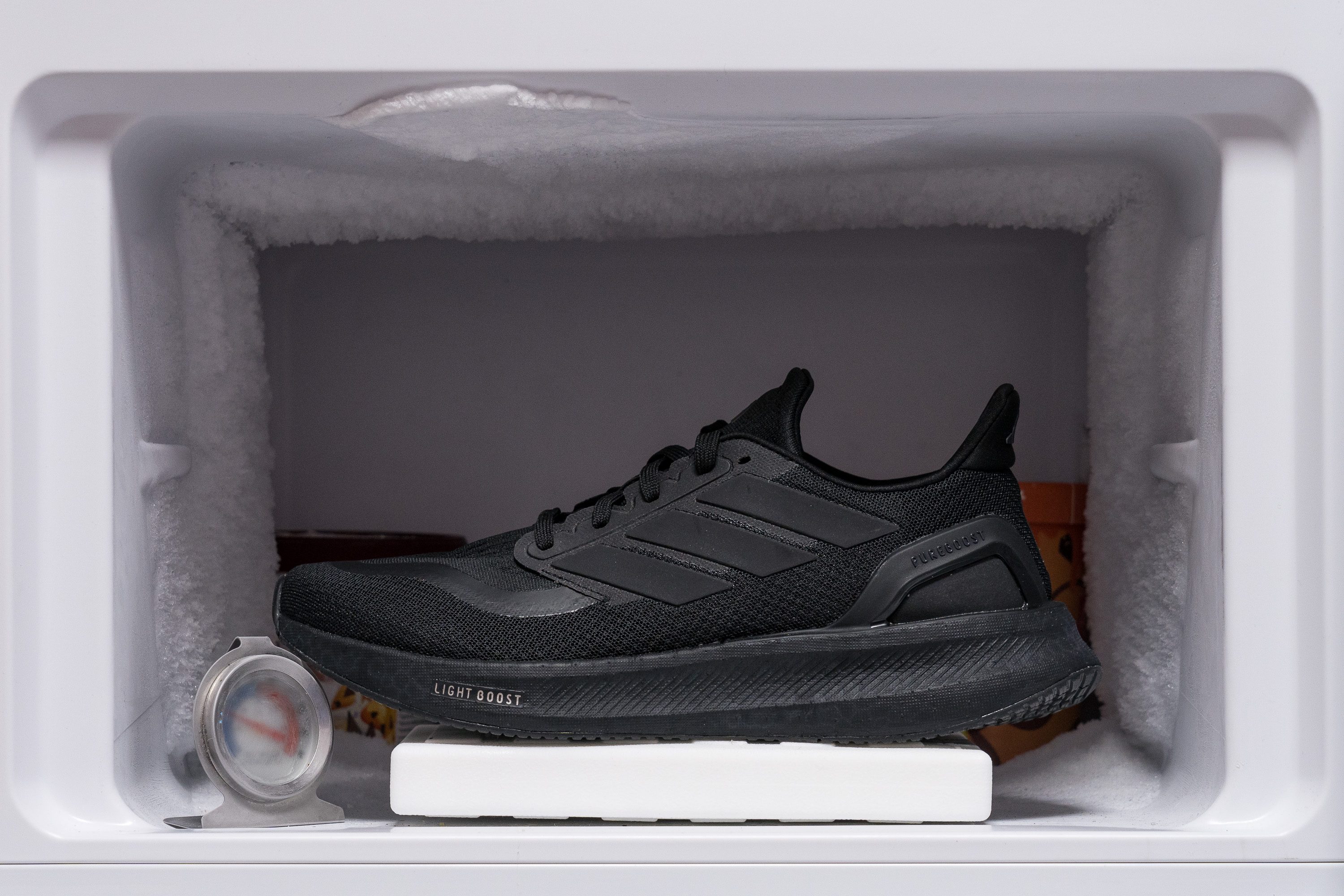
| Pureboost 5 | 20% |
| Average | 24% |
Reflective elements
For not being a premium-level shoe, it was delightful to find super-useful reflective elements in the Pureboost 5, boosting visibility for night runs and adding a sharp-and-stylish touch.
This feature becomes even more relevant in this triple-black colorway.
| Pureboost 5 | Yes |
Tongue padding
We found that the tongue is smartly padded at 7.4 mm, leaning toward a comfort-focused feel without going overboard. We’ve tested many budget-friendly daily trainers that use 10-mm tongues or thicker, but that’s unnecessary bulk for most runners.
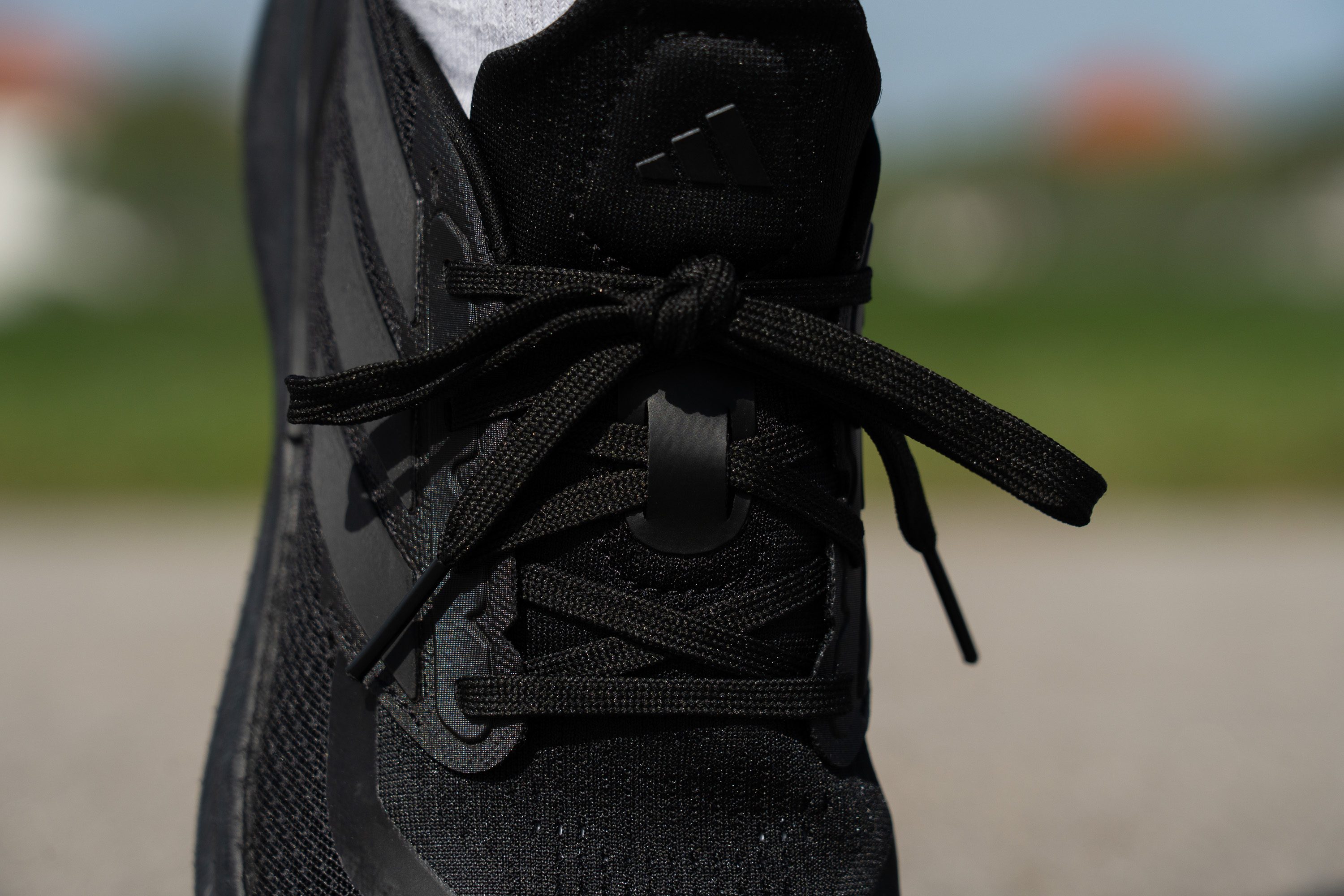
The lacing system impressed us with its highly-durable, well-designed adjustment, as the eyelet chain is reinforced by a super-strong TPU cage. Adidas faced eyelet-related durability issues in some models like the Adizero Adios Pro 3, but we’re confident that won’t happen here.
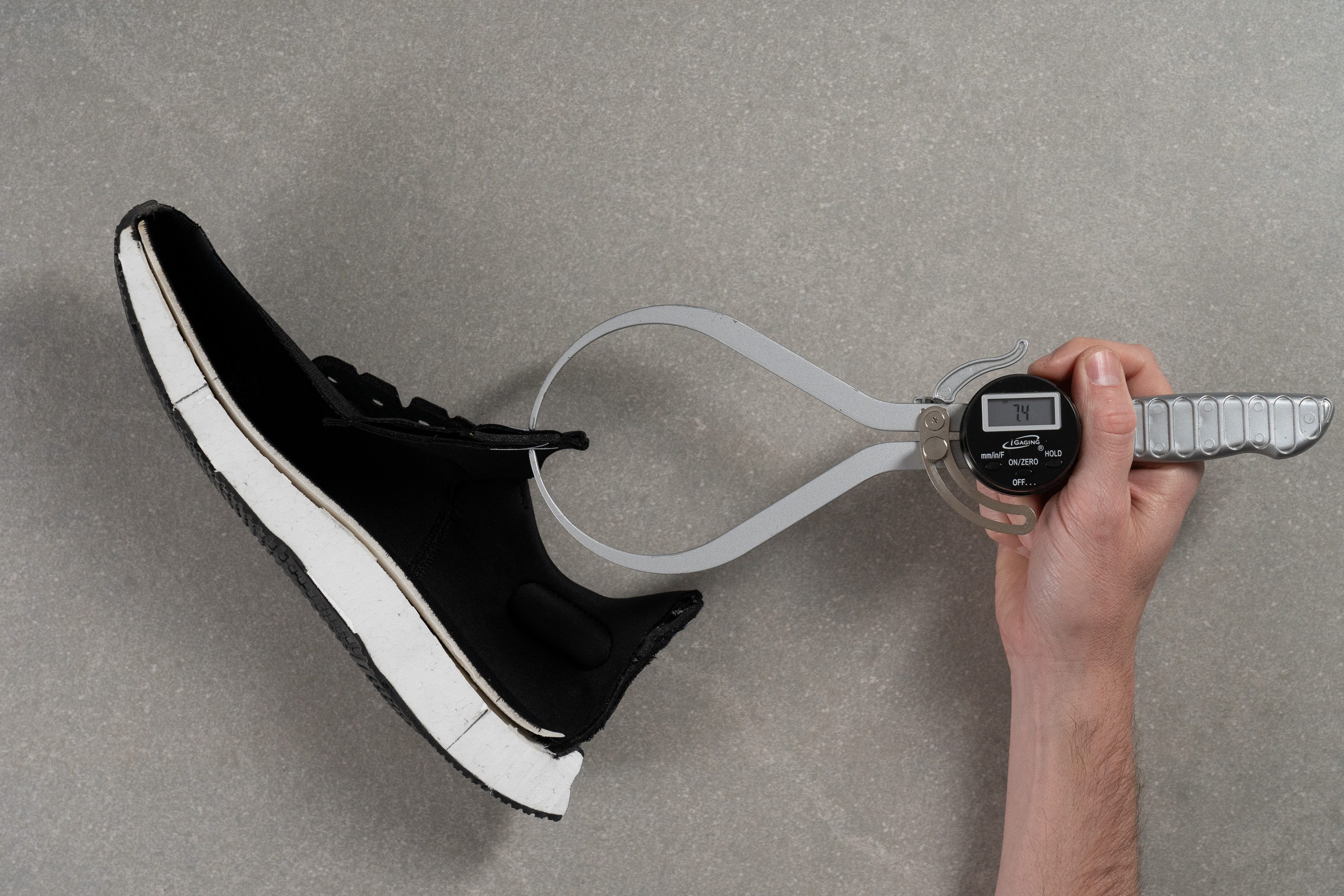
| Pureboost 5 | 7.4 mm |
| Average | 5.7 mm |
Tongue: gusset type
It’s uncommon for us to see semi-gusseted tongues in a shoe priced like the Pureboost 5, but Adidas delivered this time—great news, as it truly enhances the lockdown.
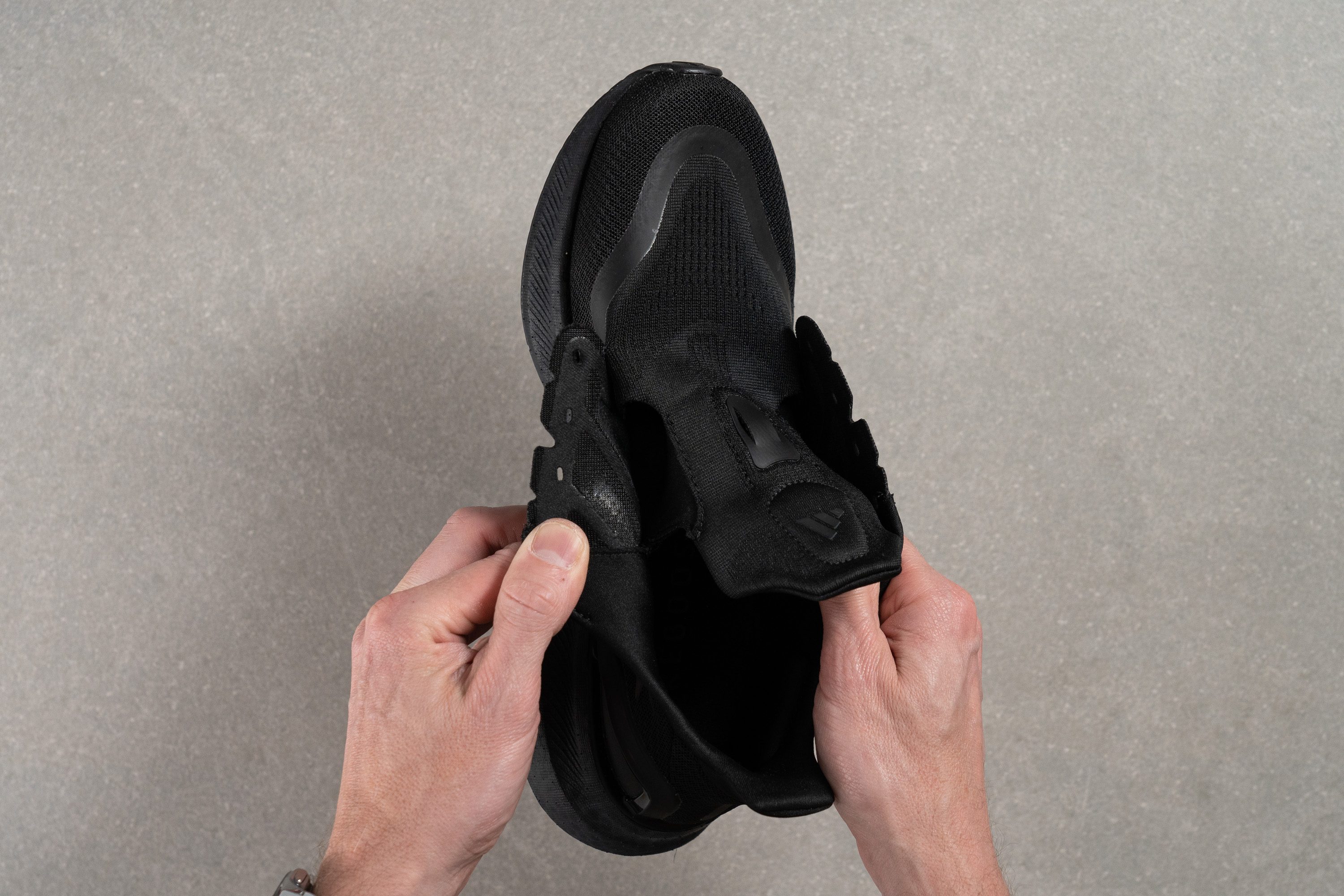
| Pureboost 5 | Both sides (semi) |
Heel tab
The heel of the Pureboost 5 follows recent Adidas Boost designs, featuring an extended heel collar that allows you to easily grab the upper when needed and alleviates tension from the Achilles tendon.
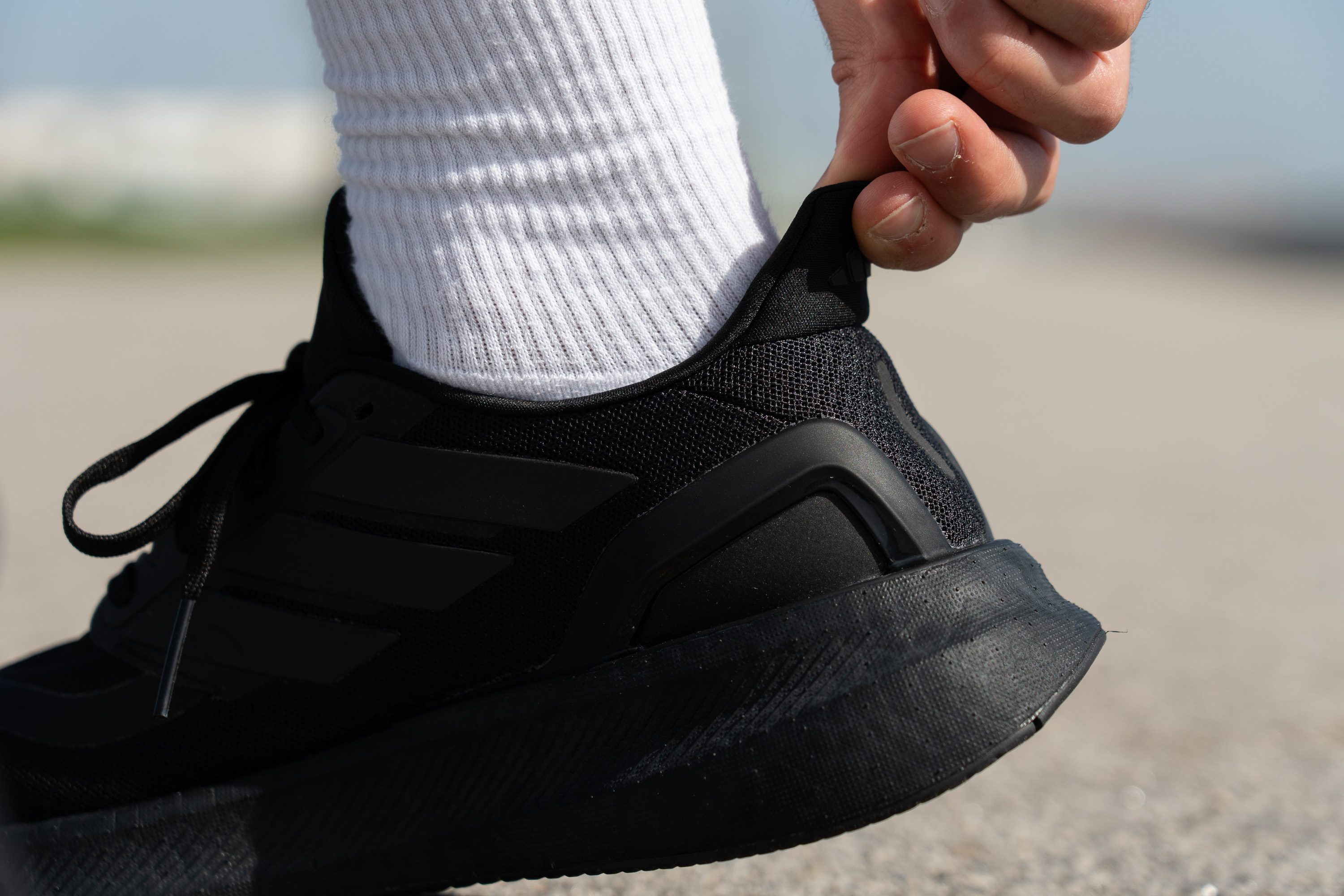
| Pureboost 5 | Extended heel collar |
Price
The Pureboost 5 is an attractively priced shoe that offers runners a similar feel to the pricier Ultraboost series, using the same foam technology. The lower price includes some downgrades (lower quality upper, Adiwear outsole instead of Continental rubber...) but, for many, it could be a worthwhile trade-off.
| Pureboost 5 | $130 |

